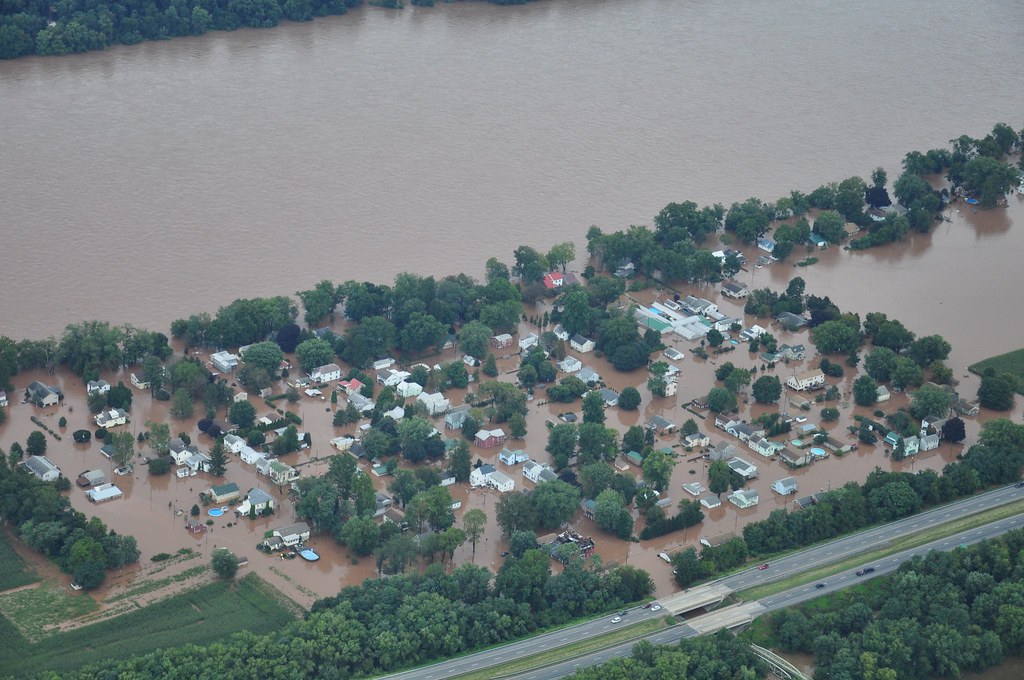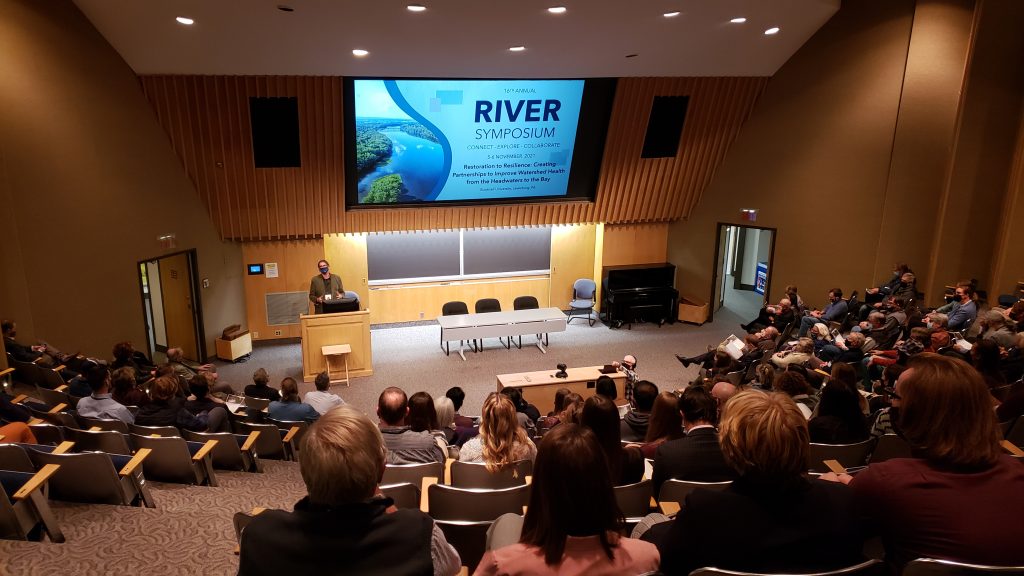
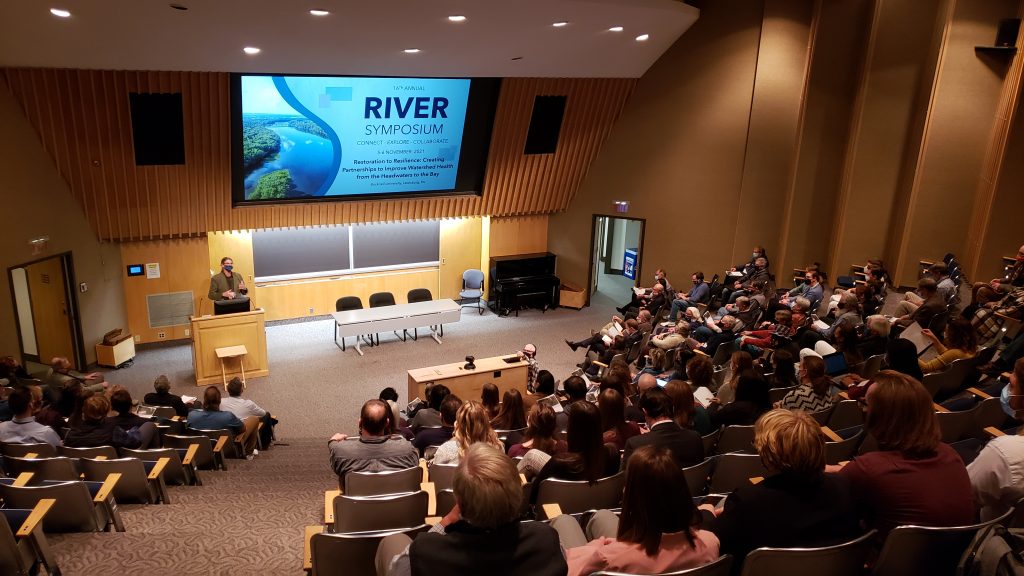
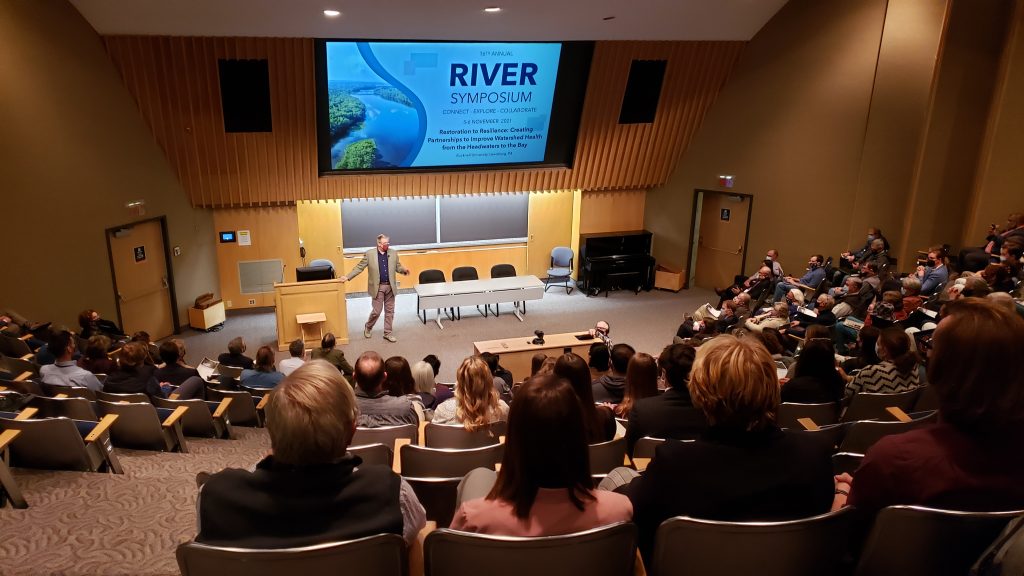
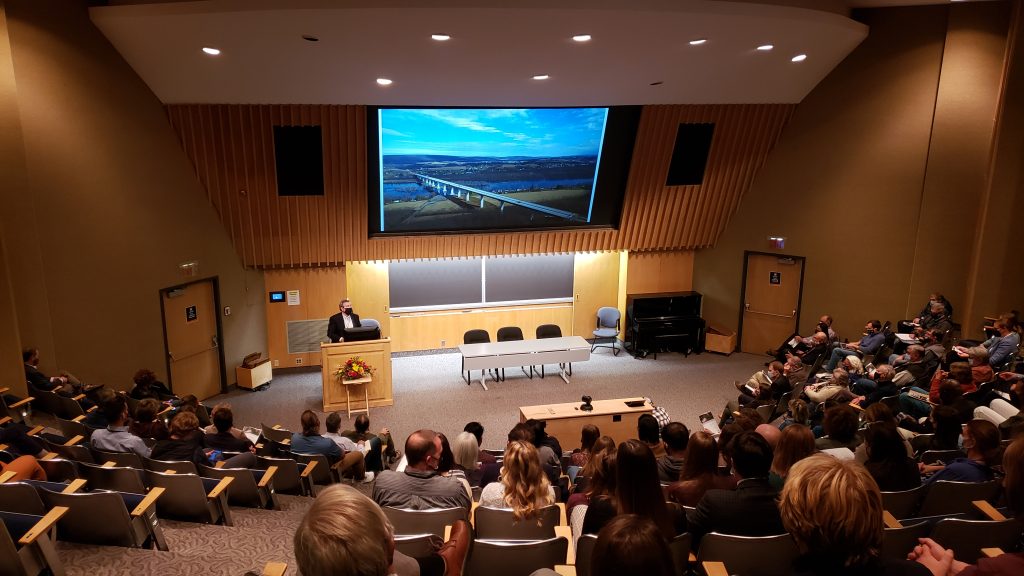
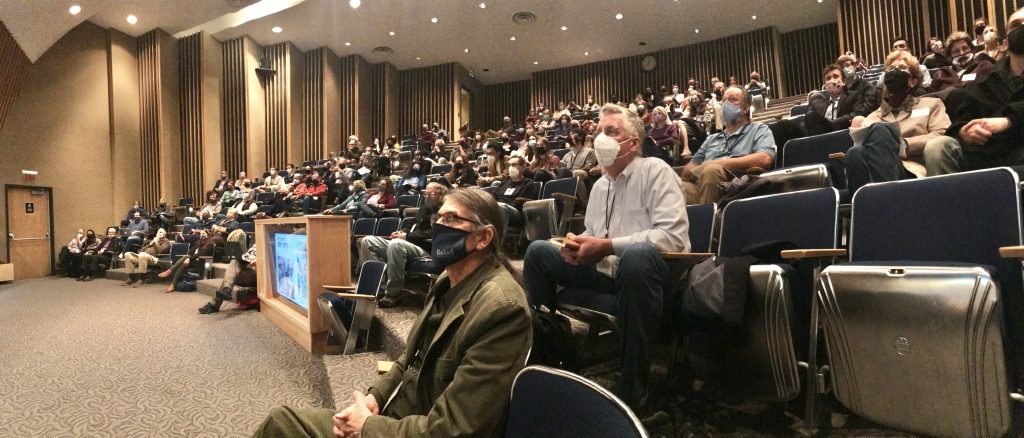
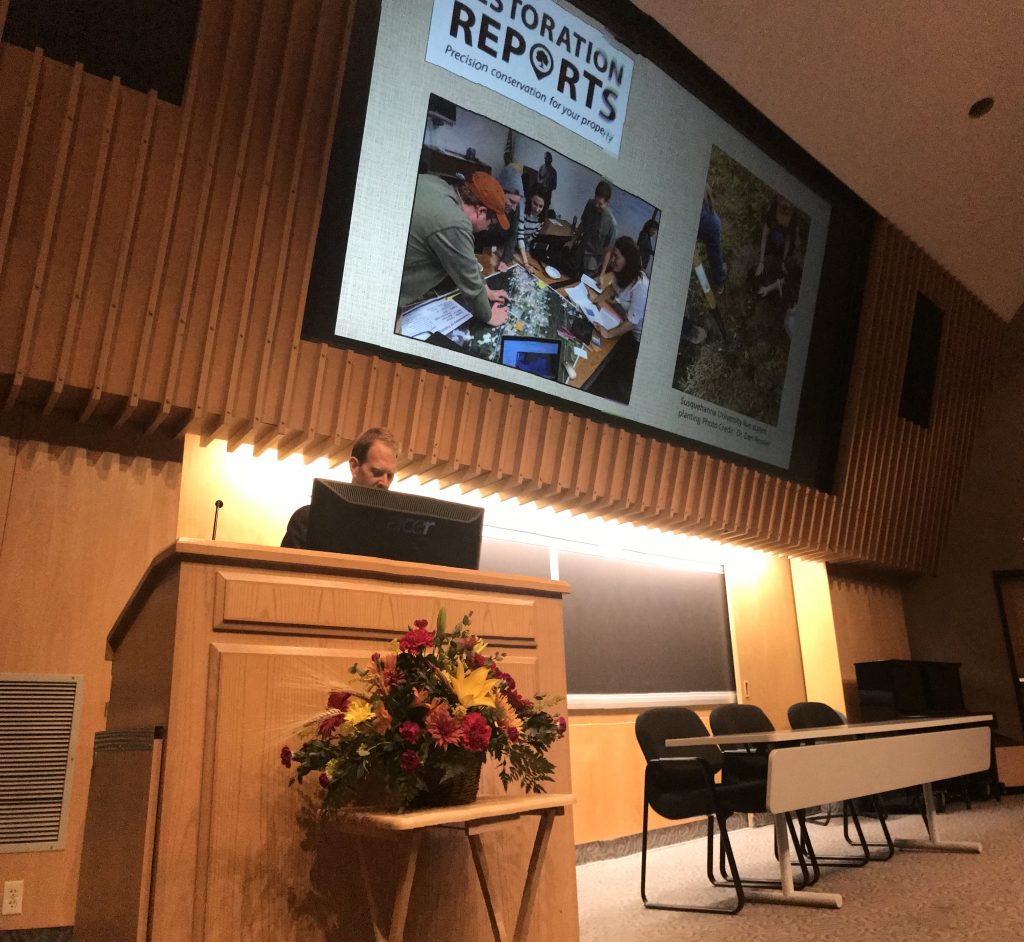
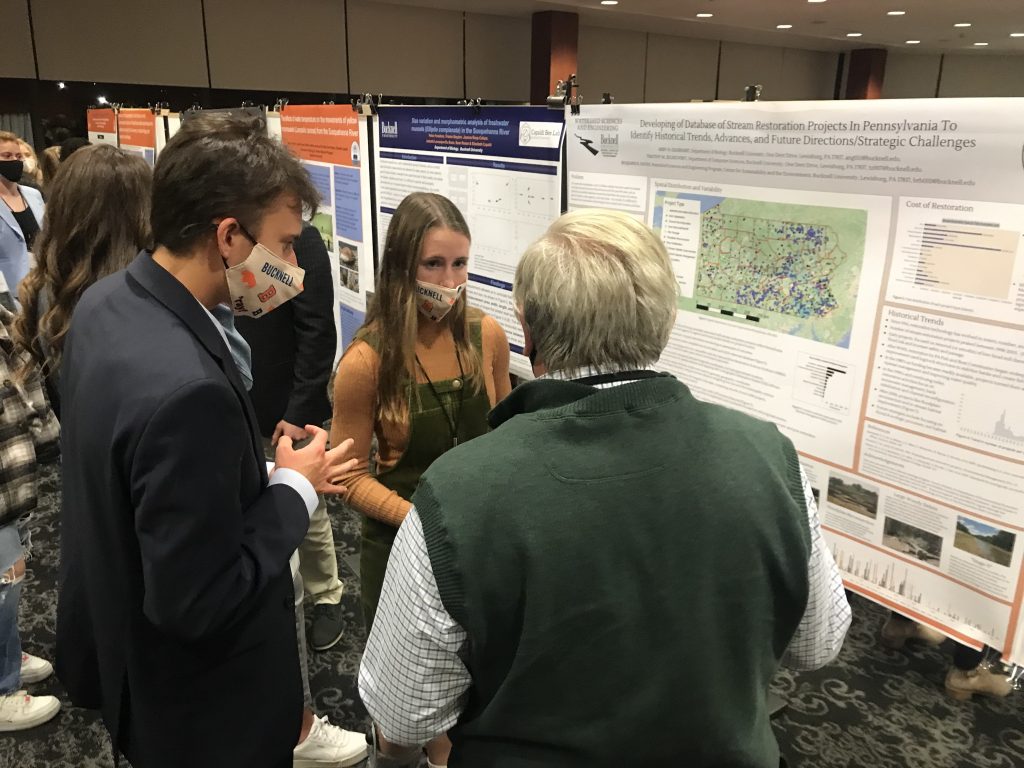
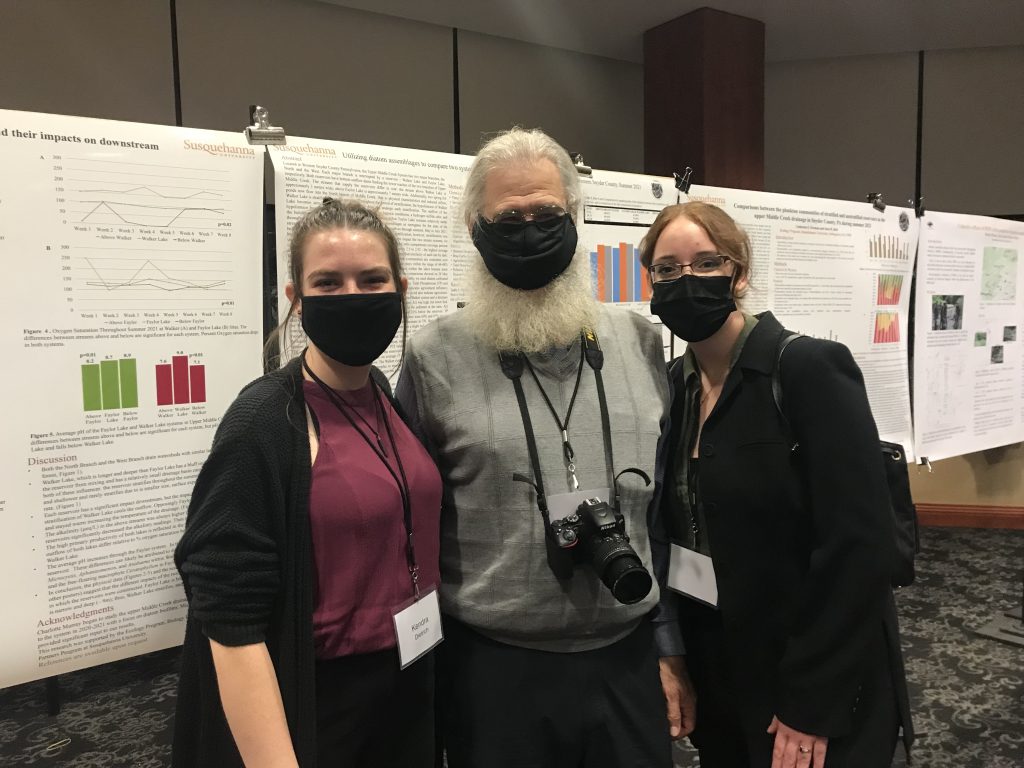
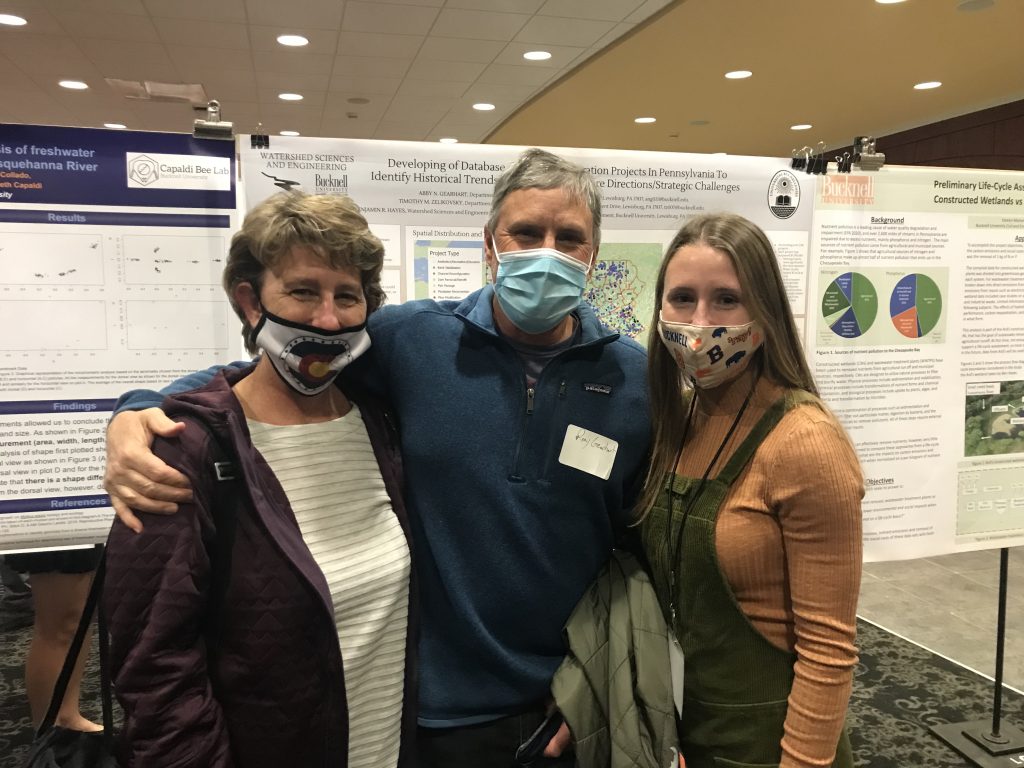
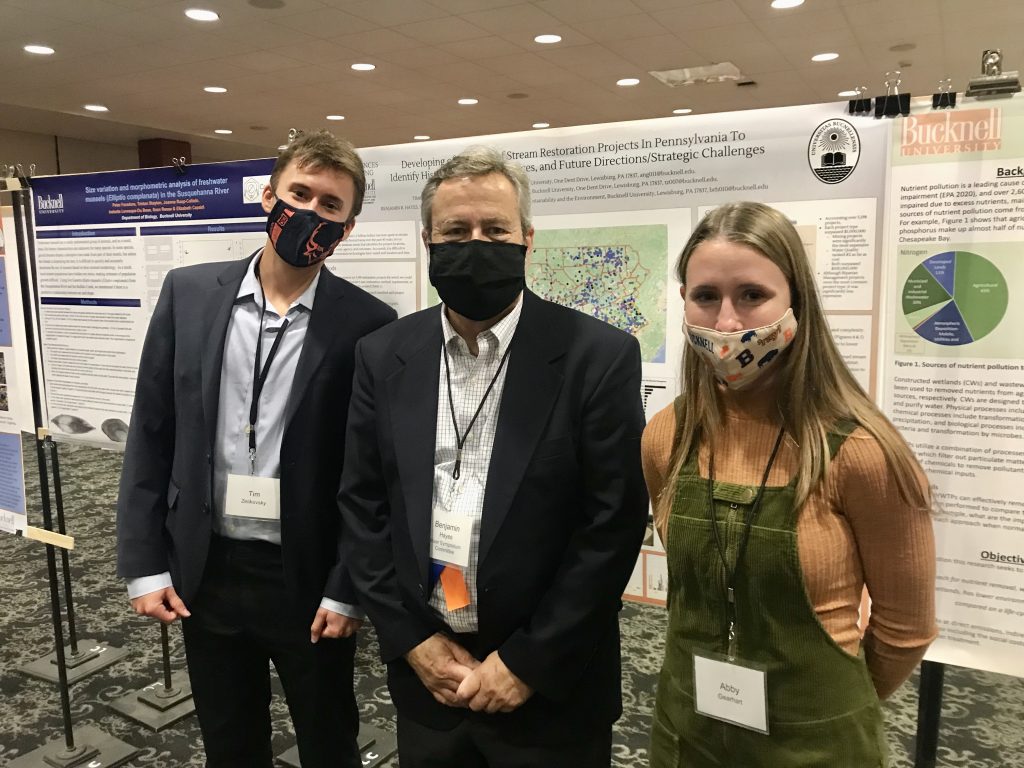
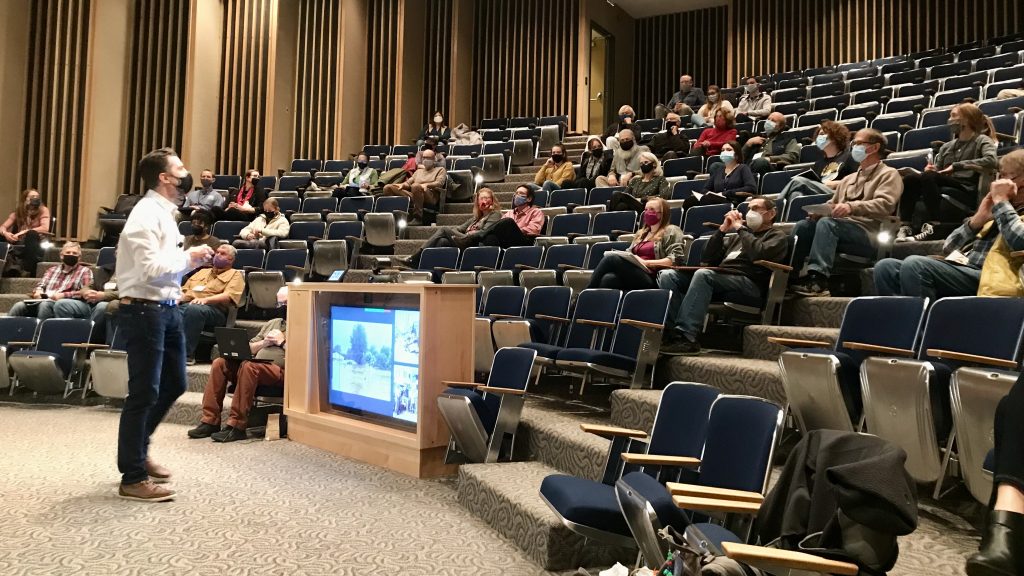
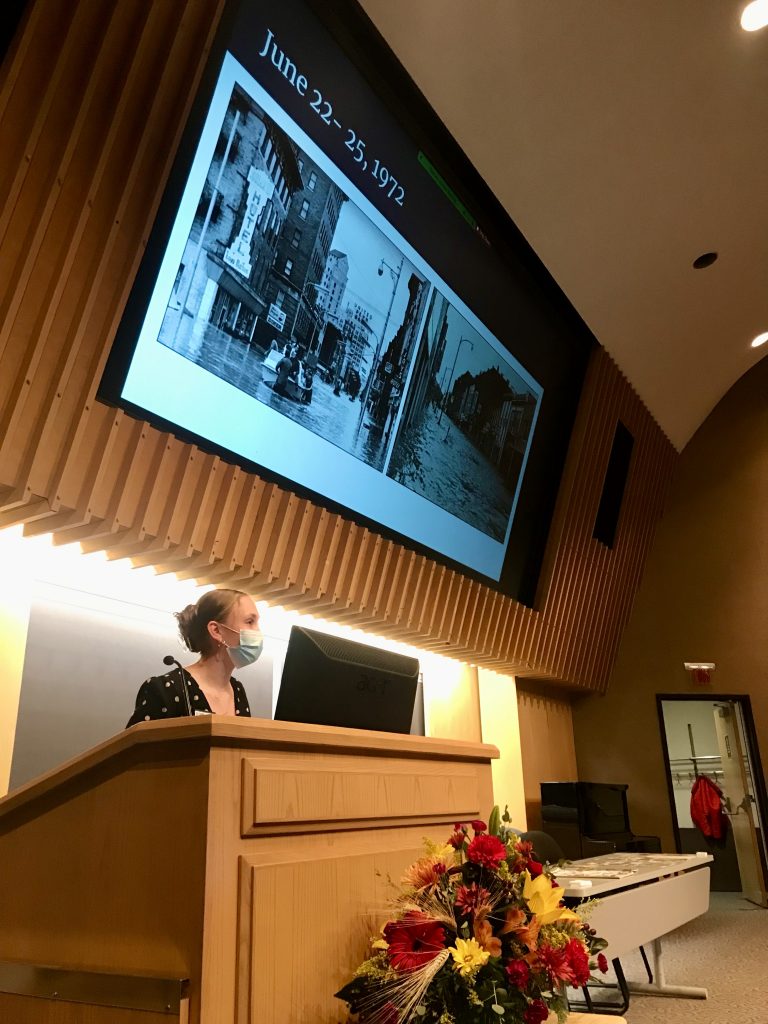
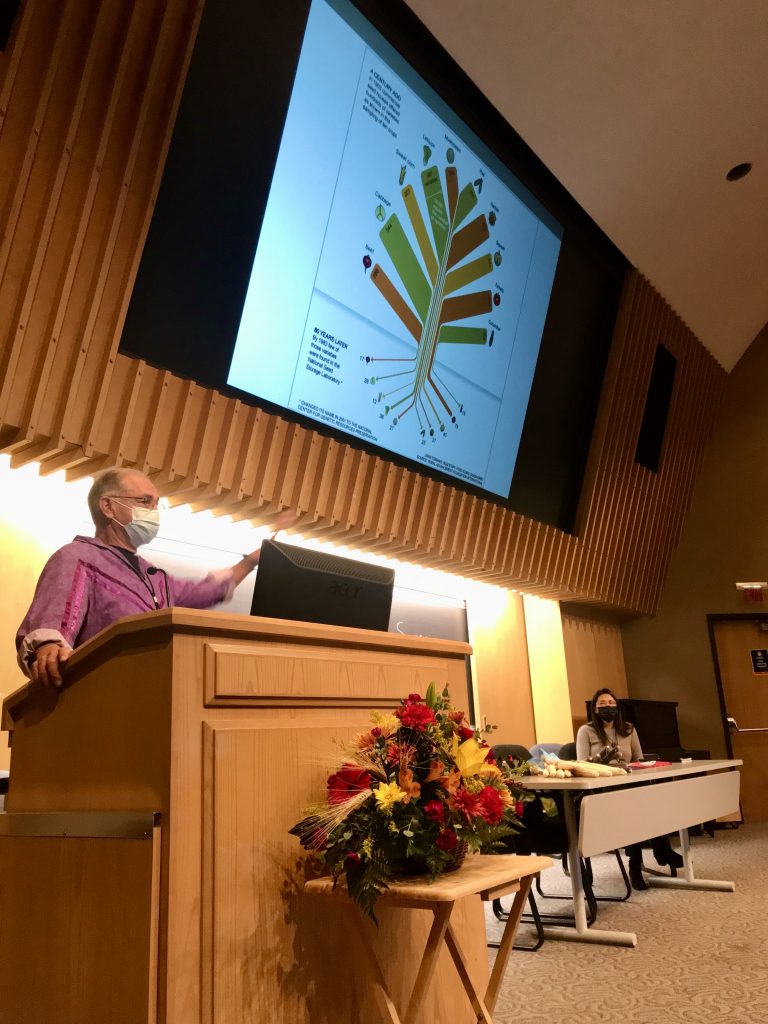
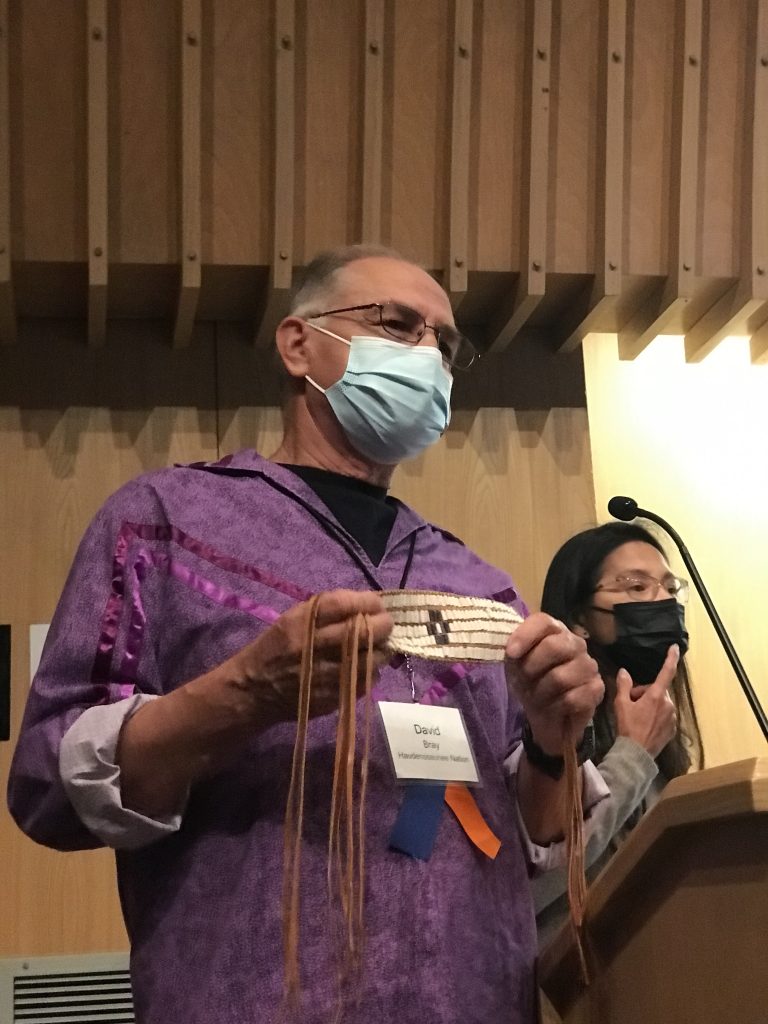
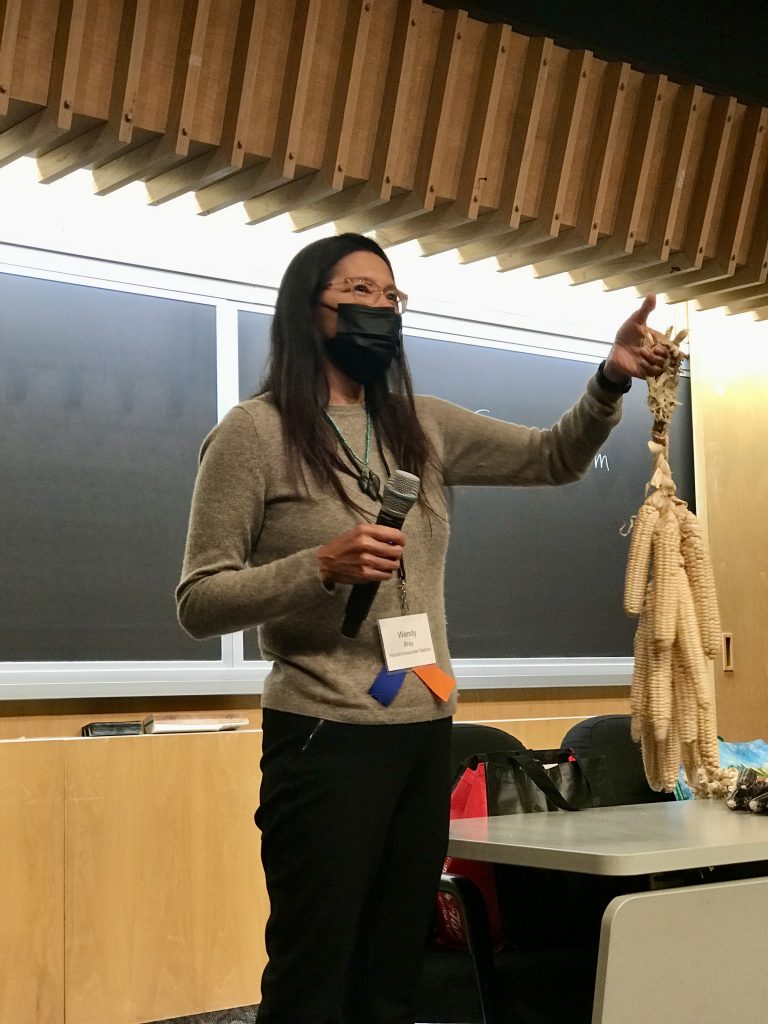
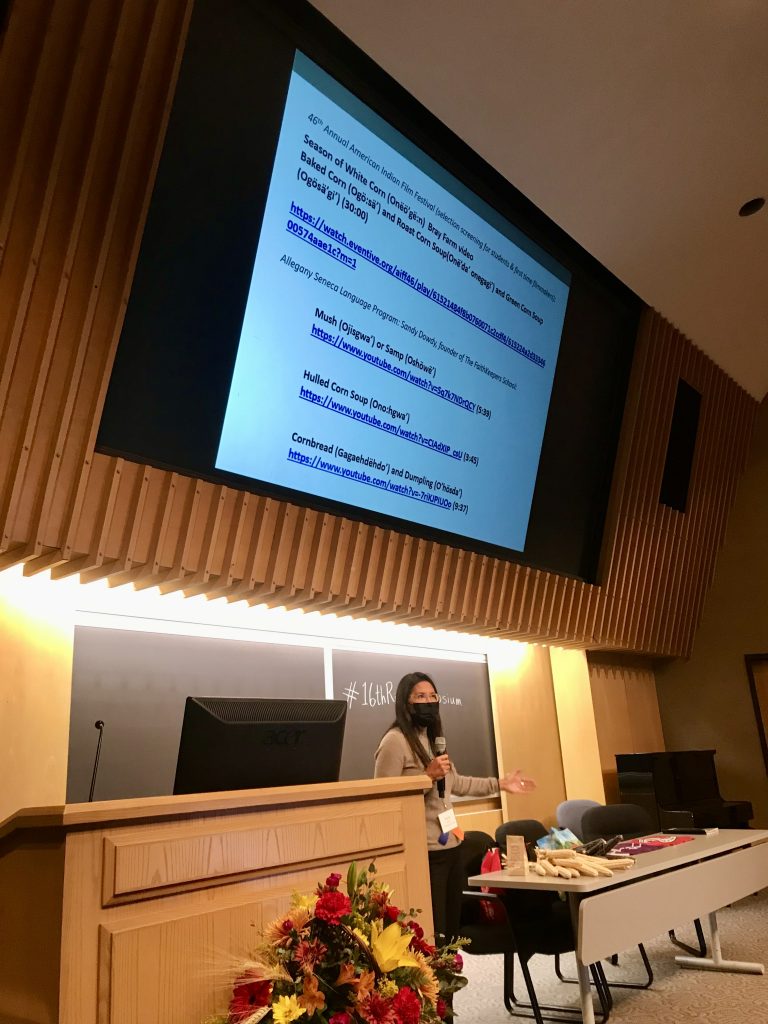
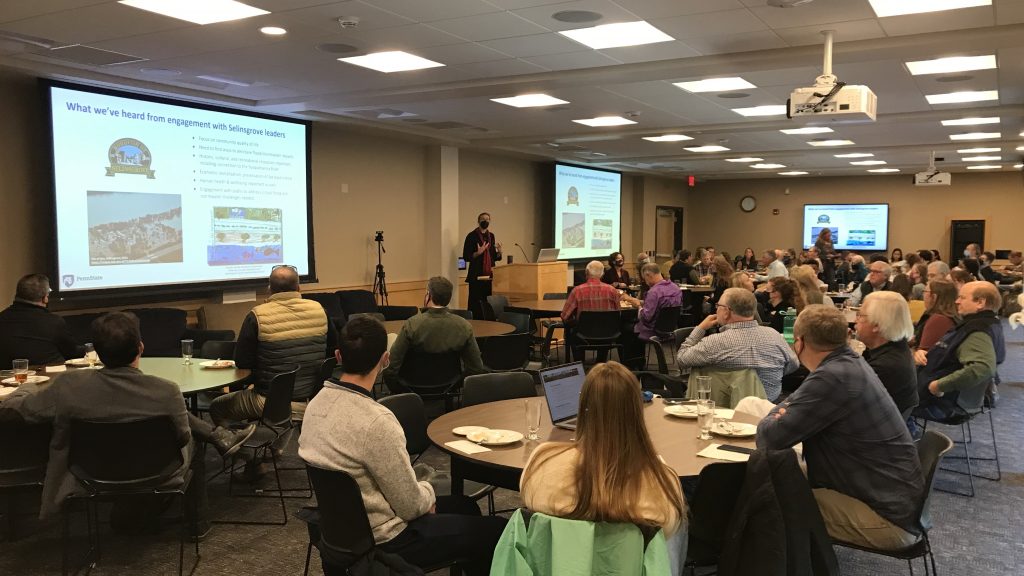
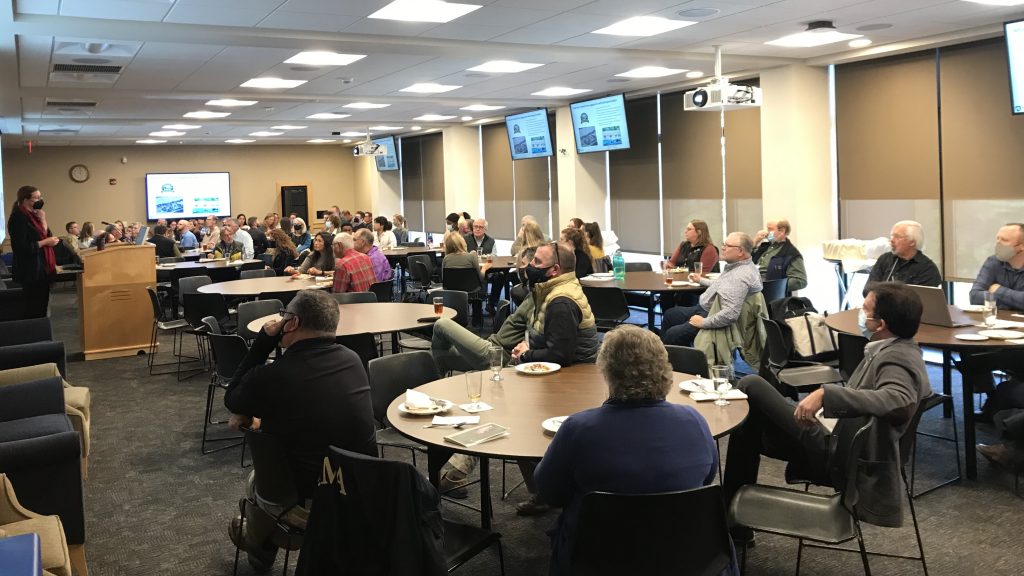
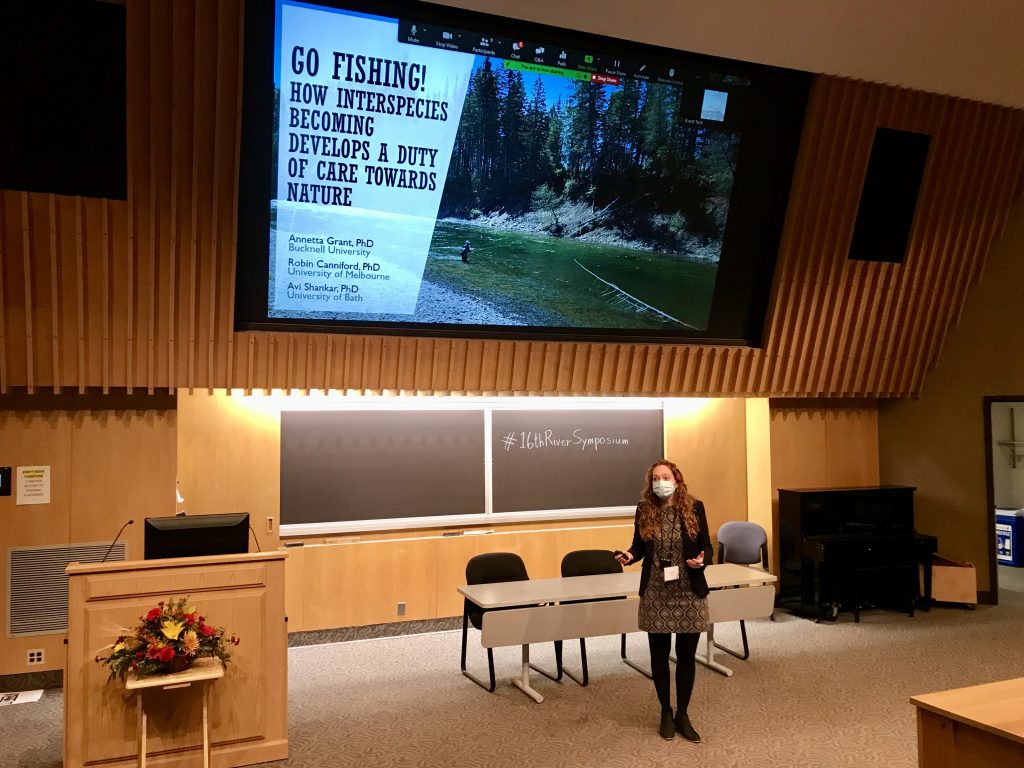
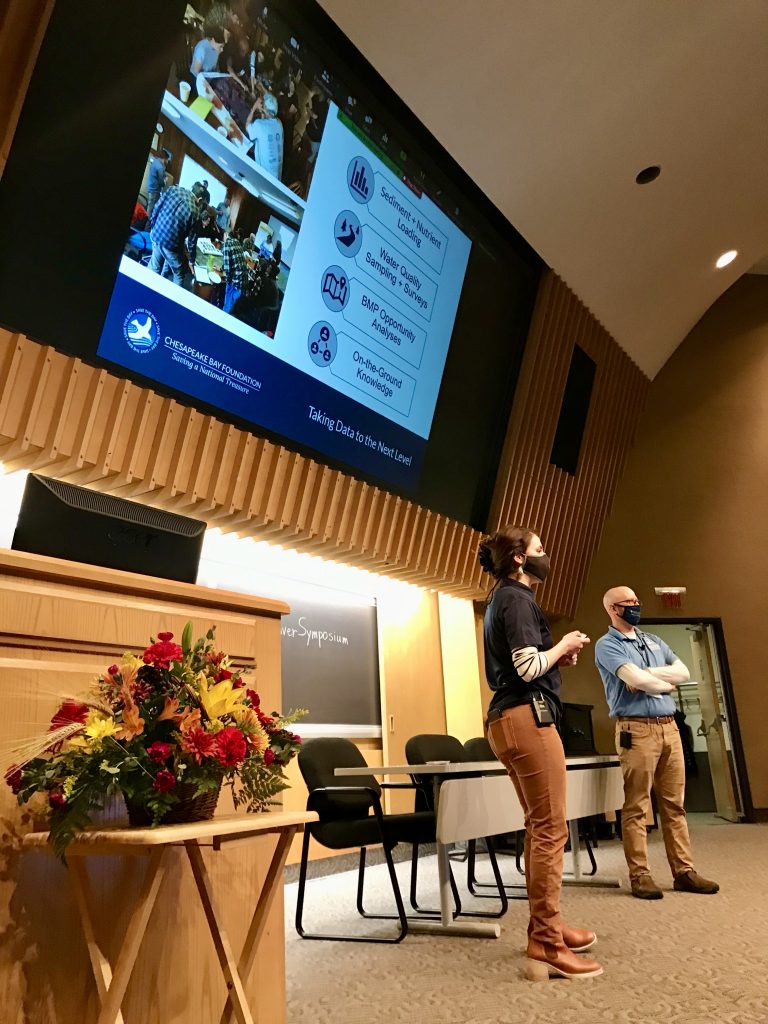
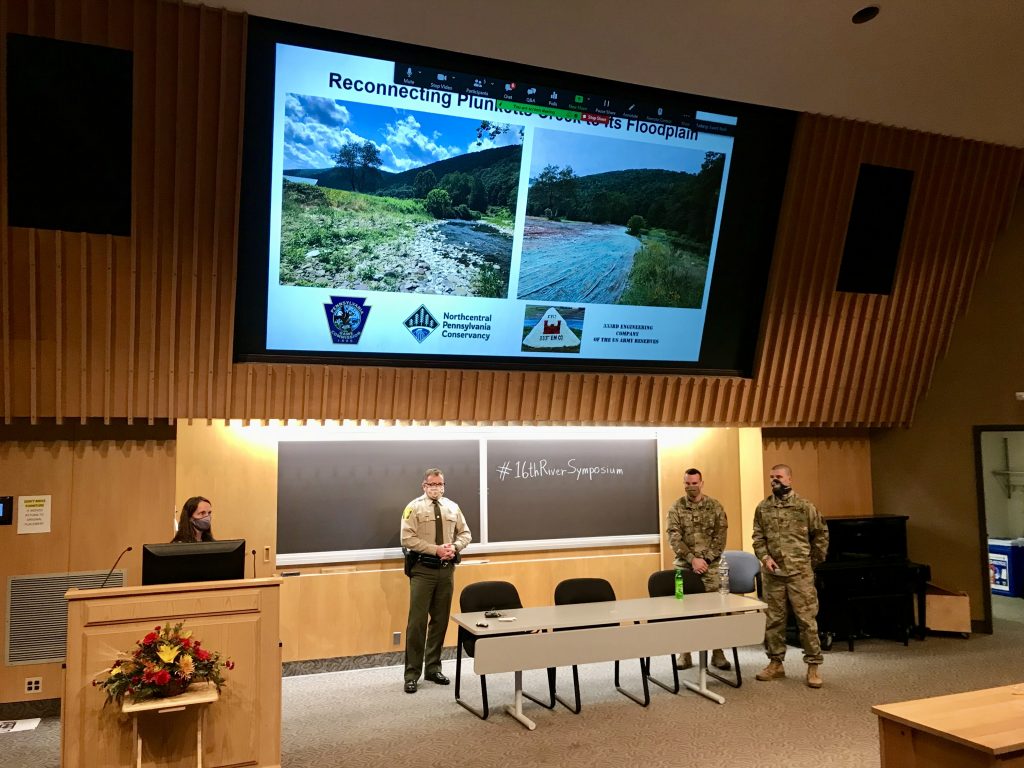
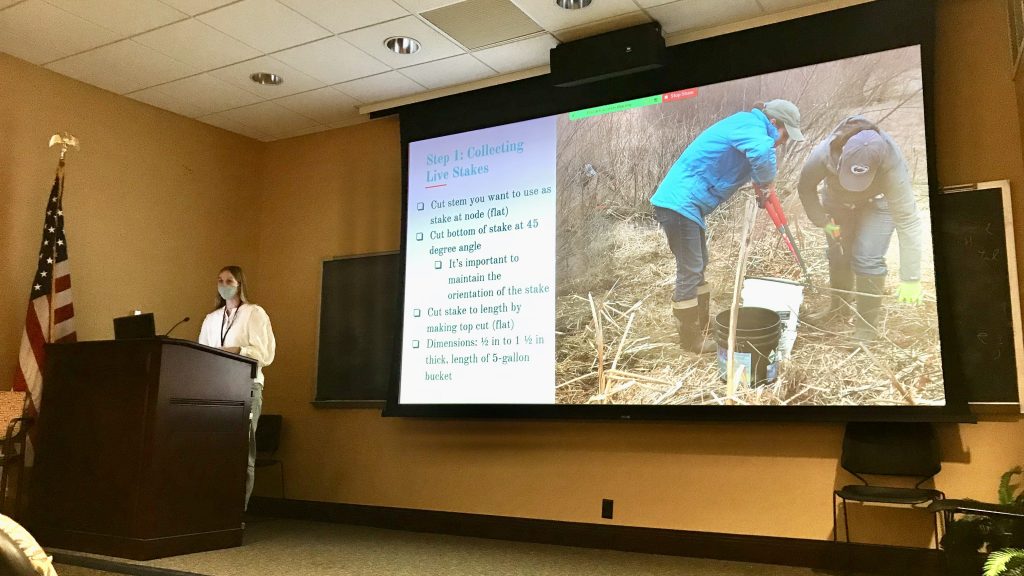
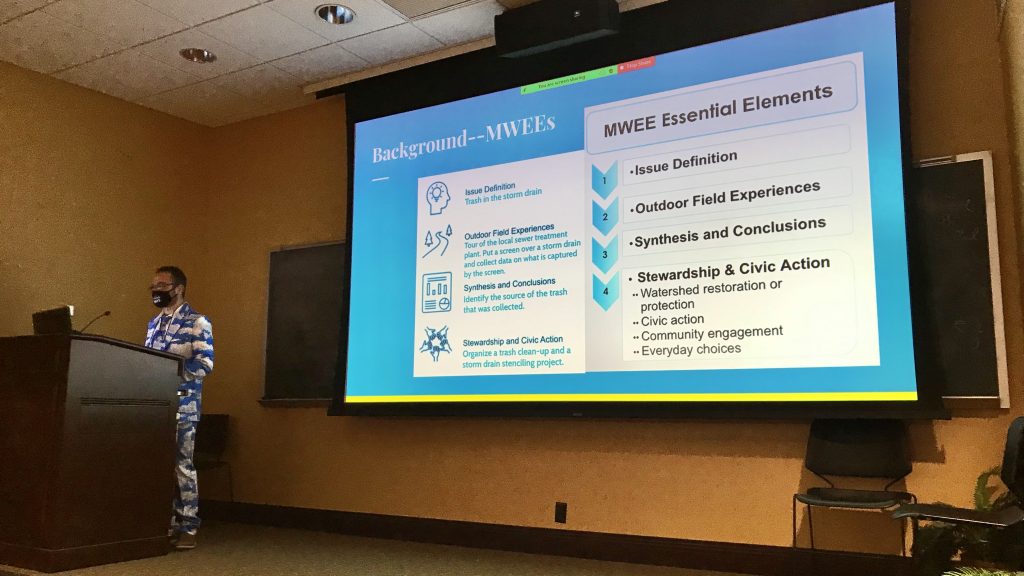
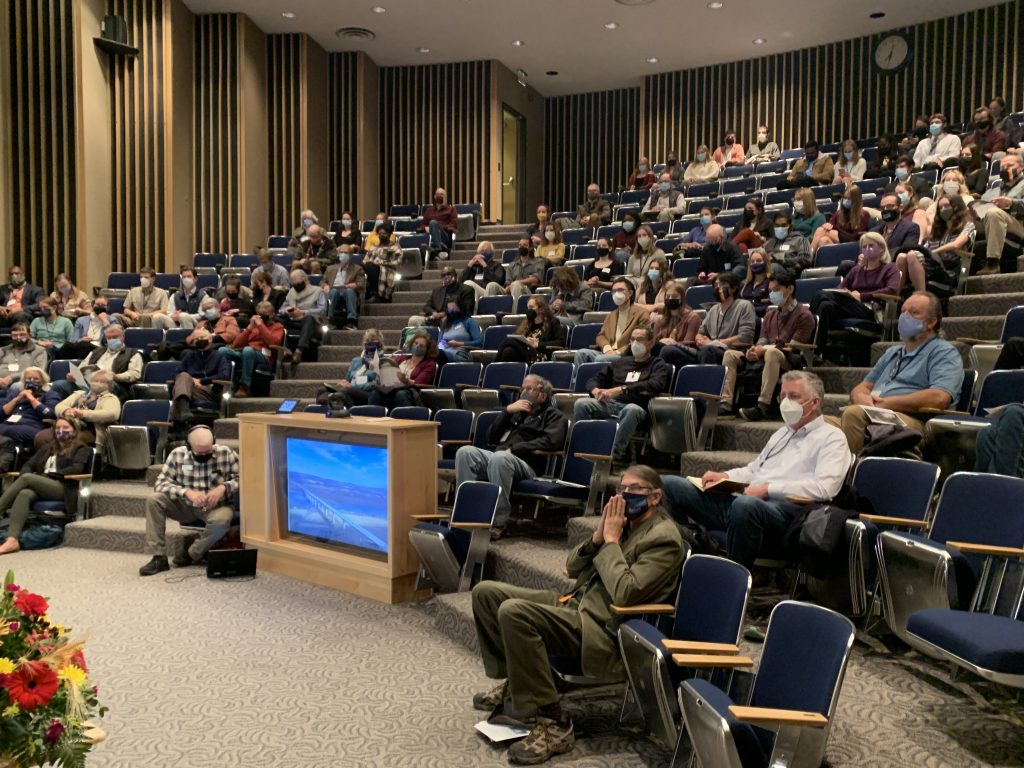
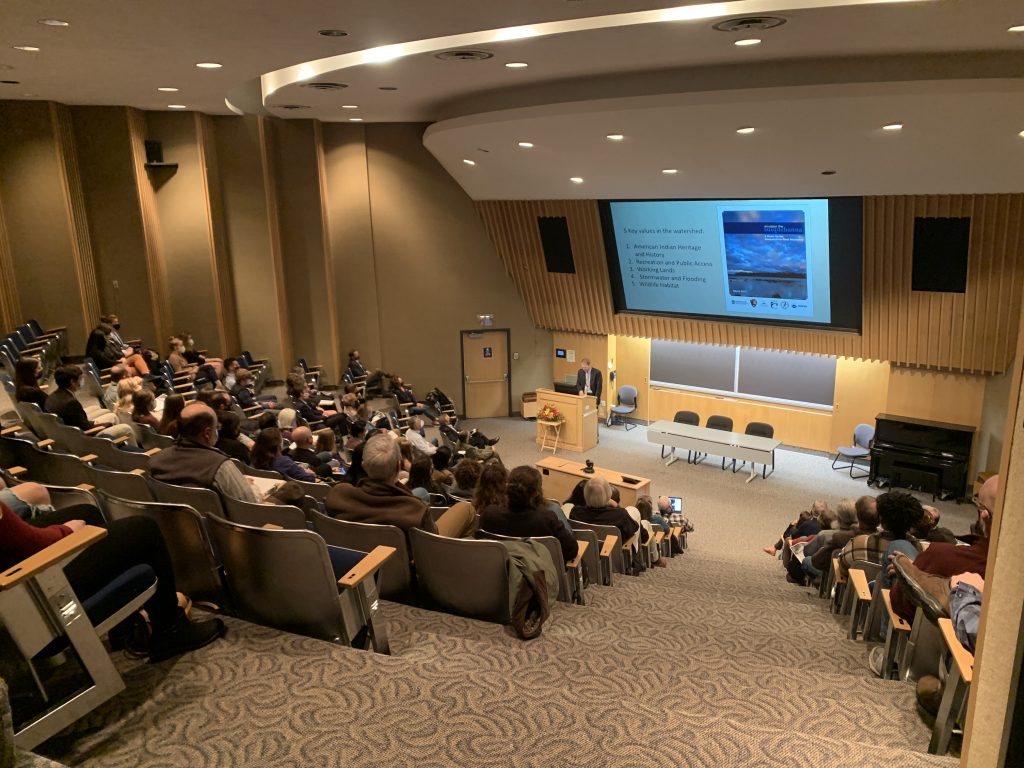
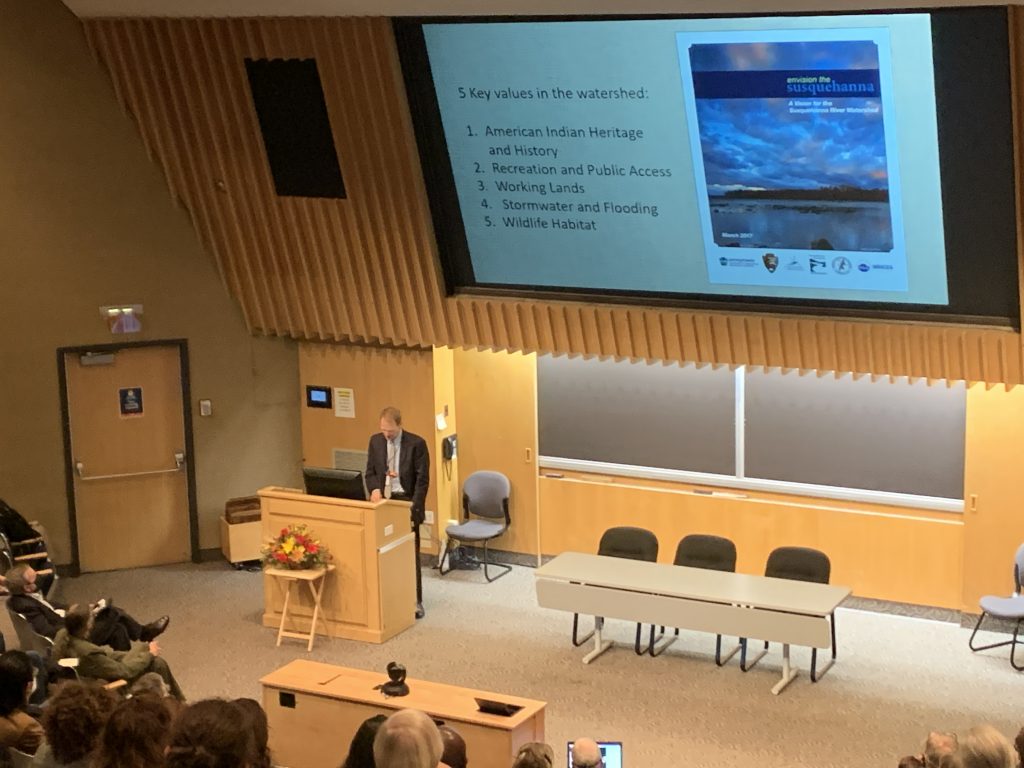
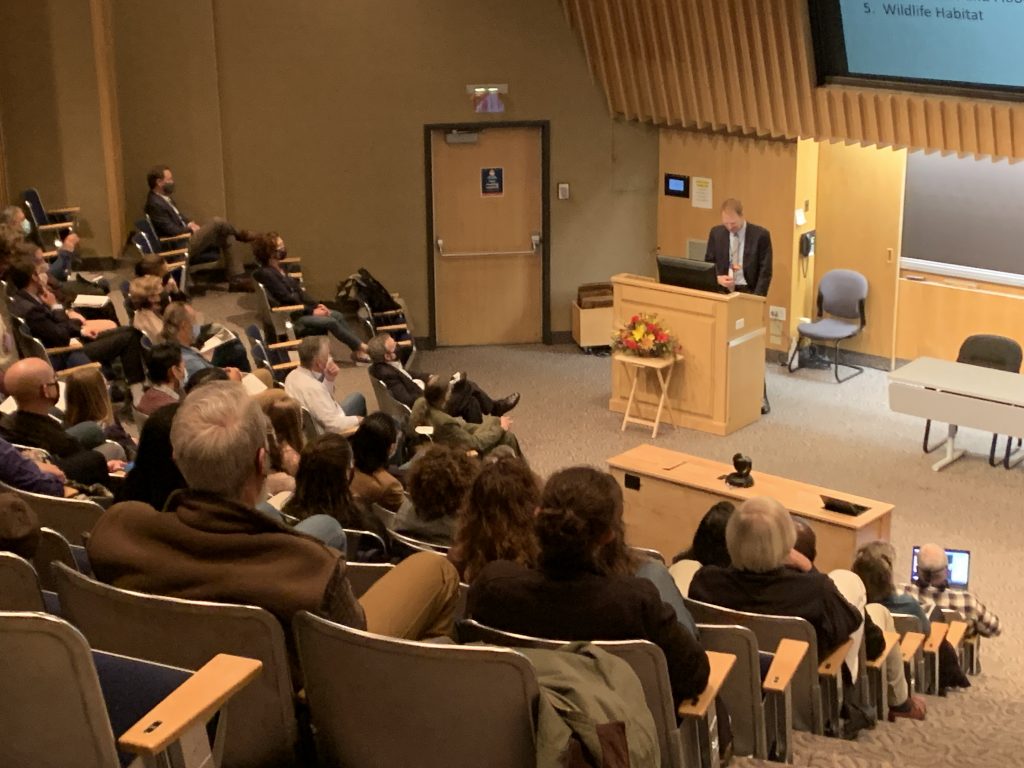
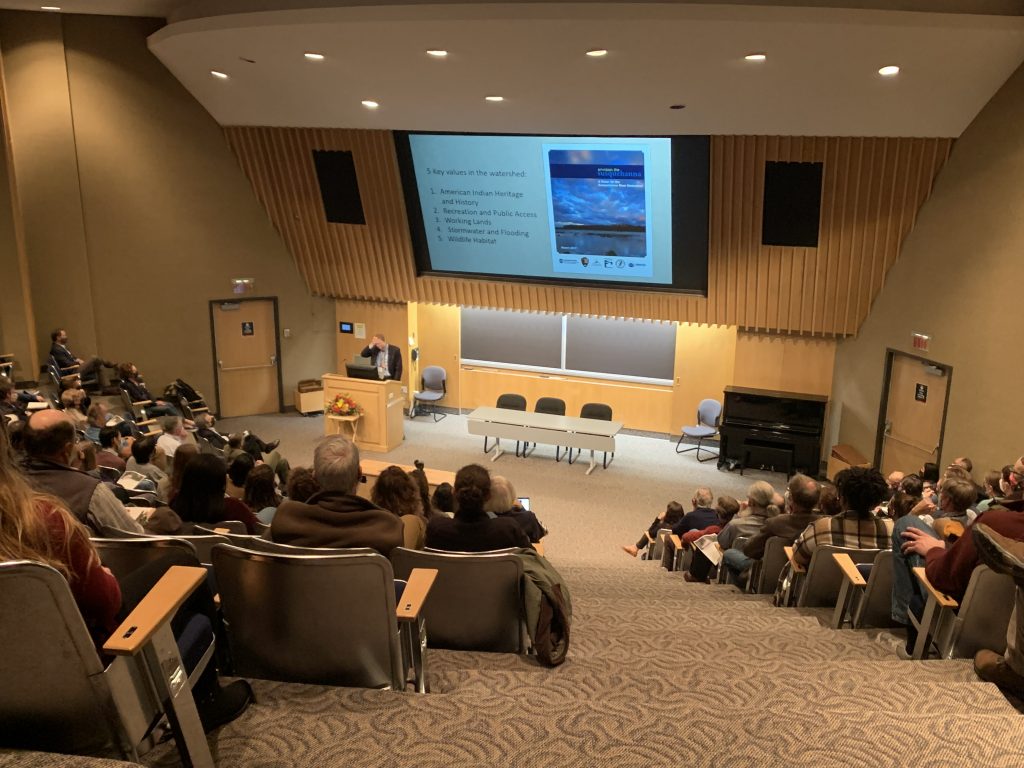
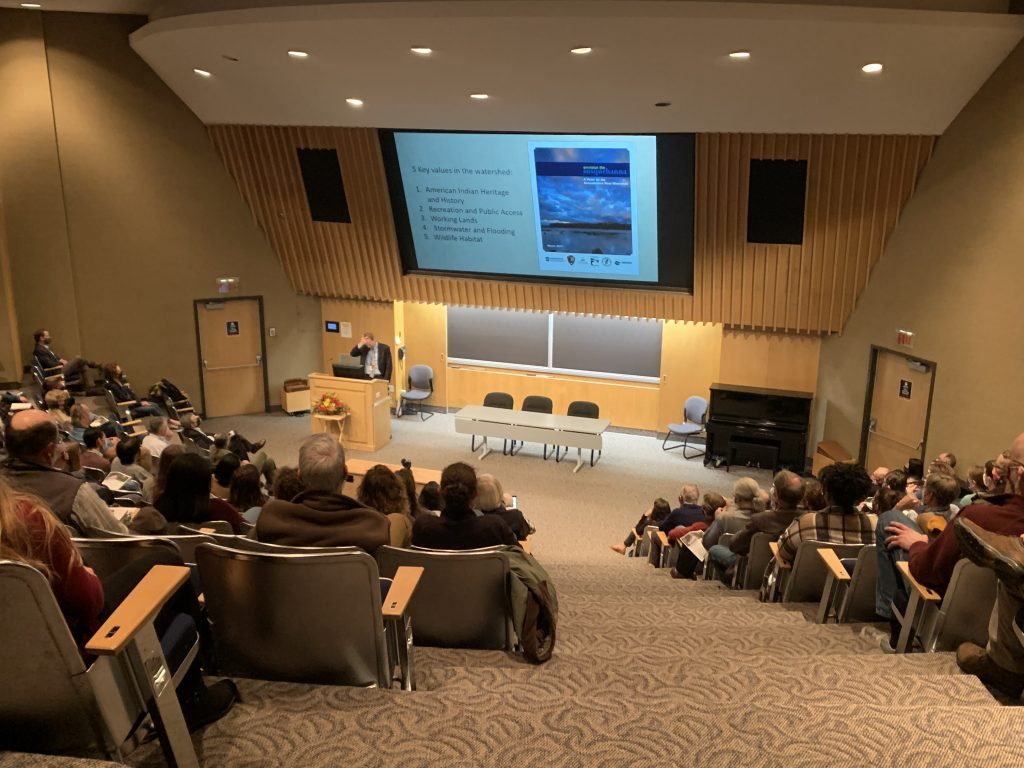
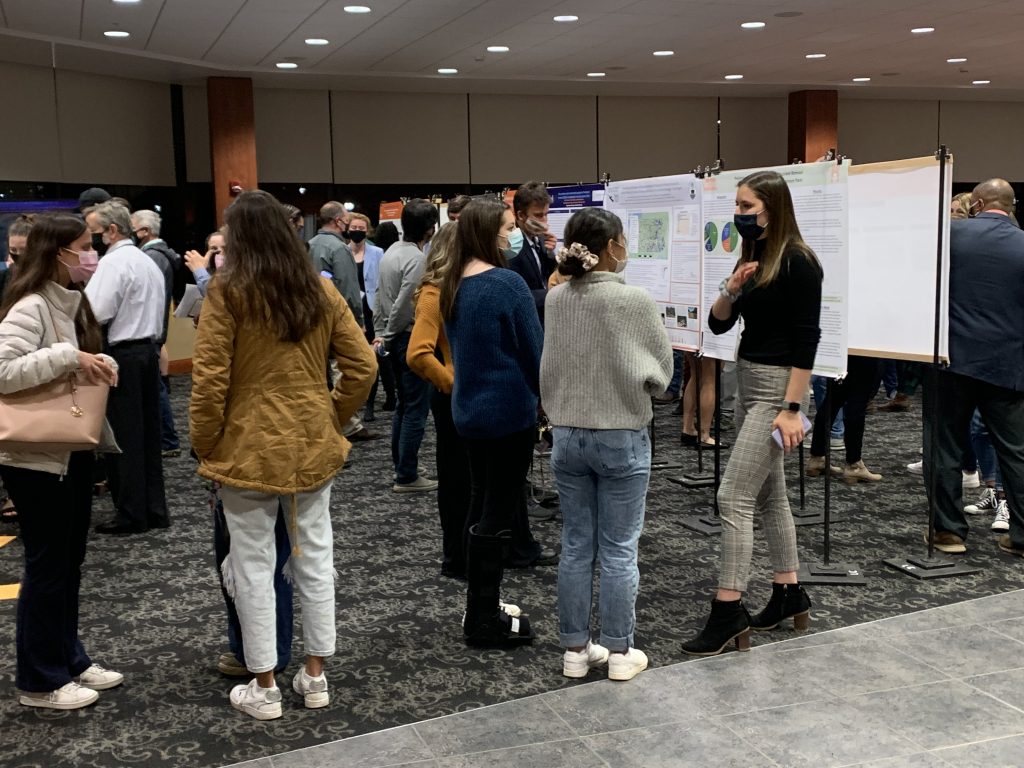
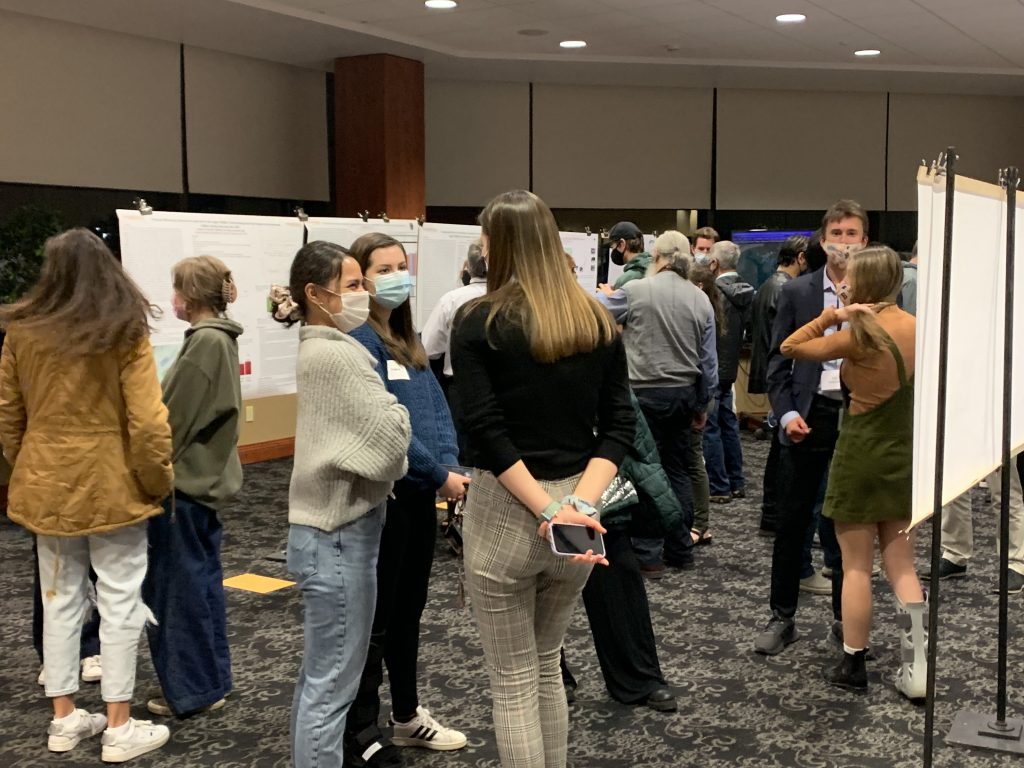
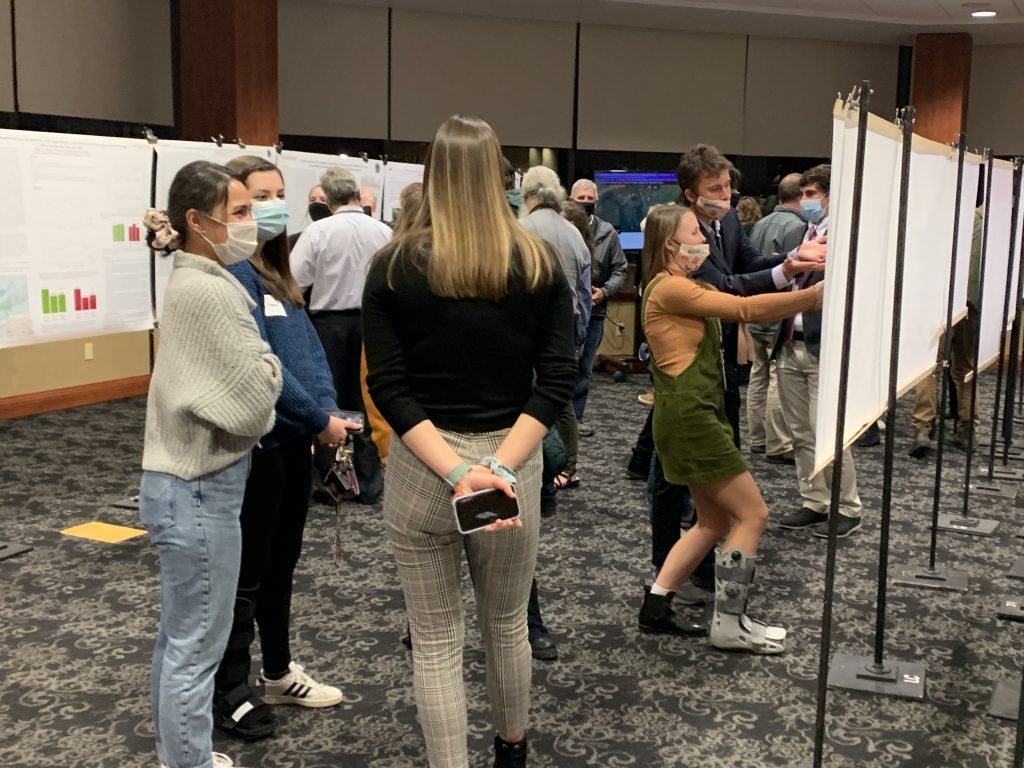
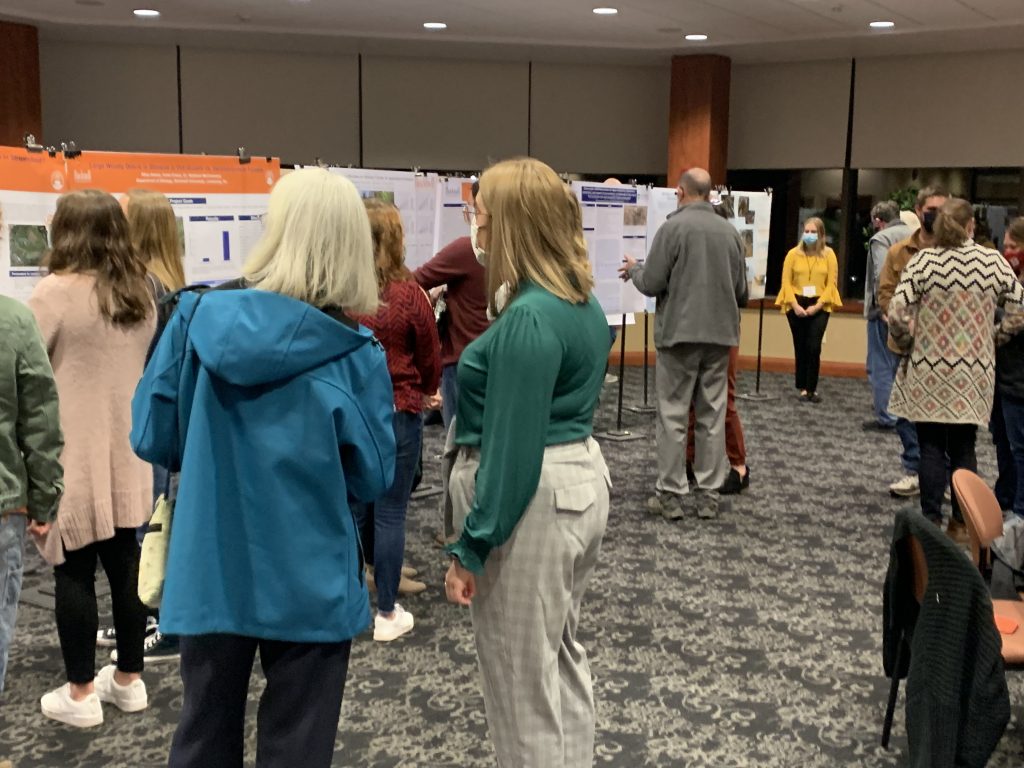
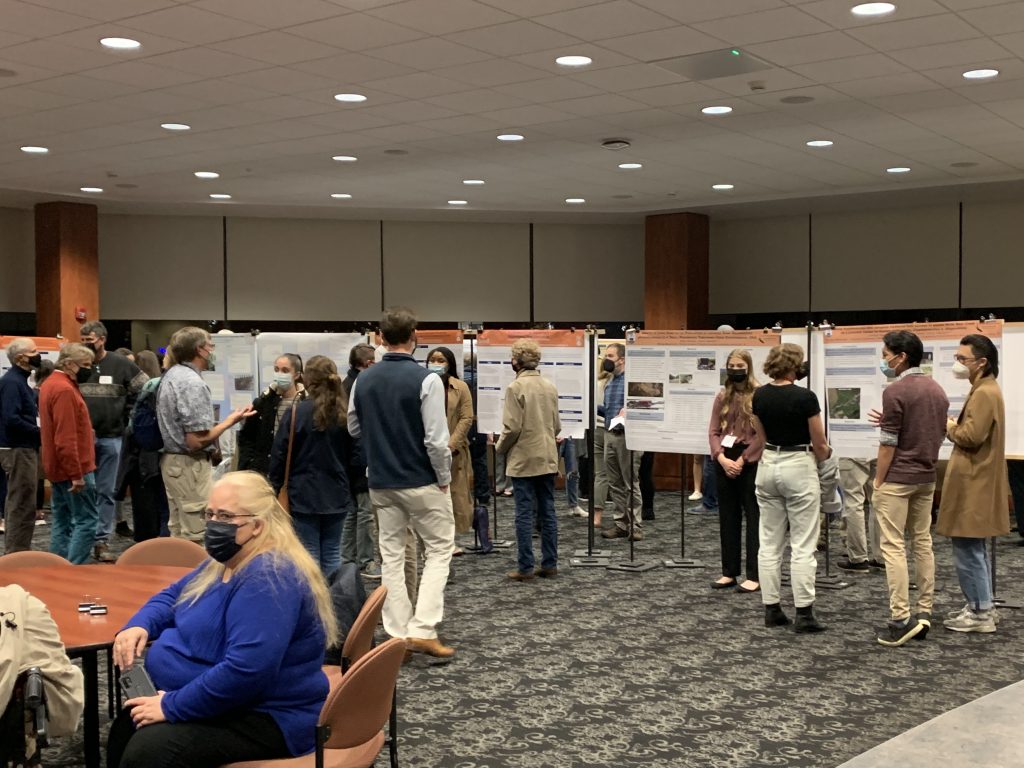
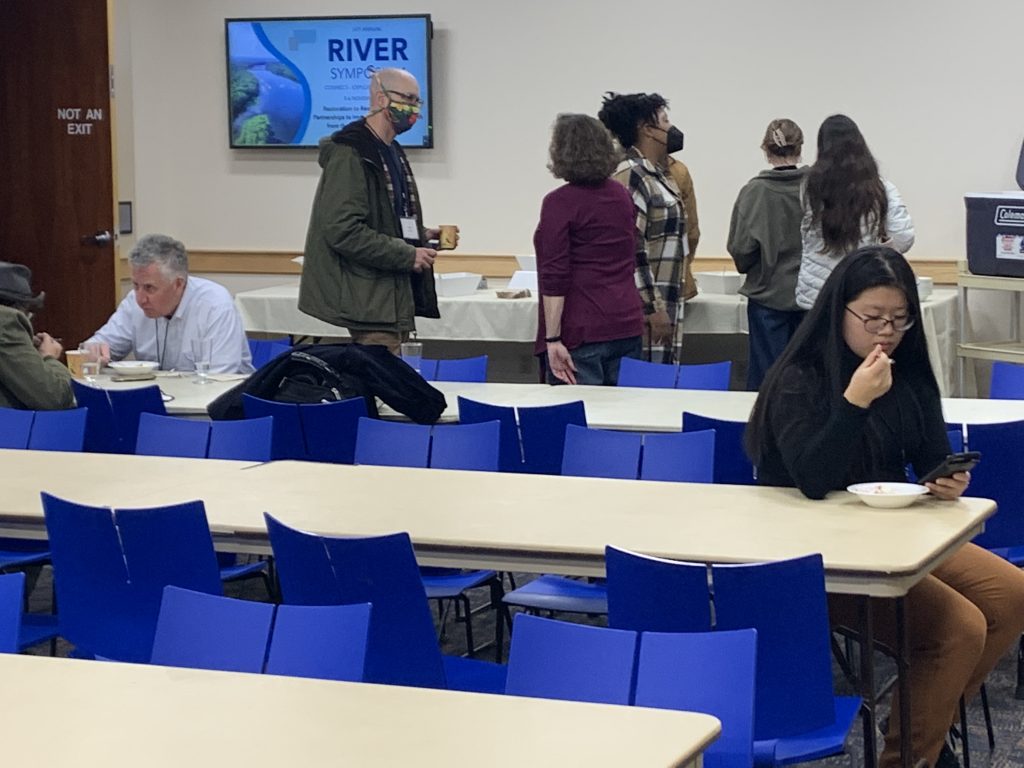
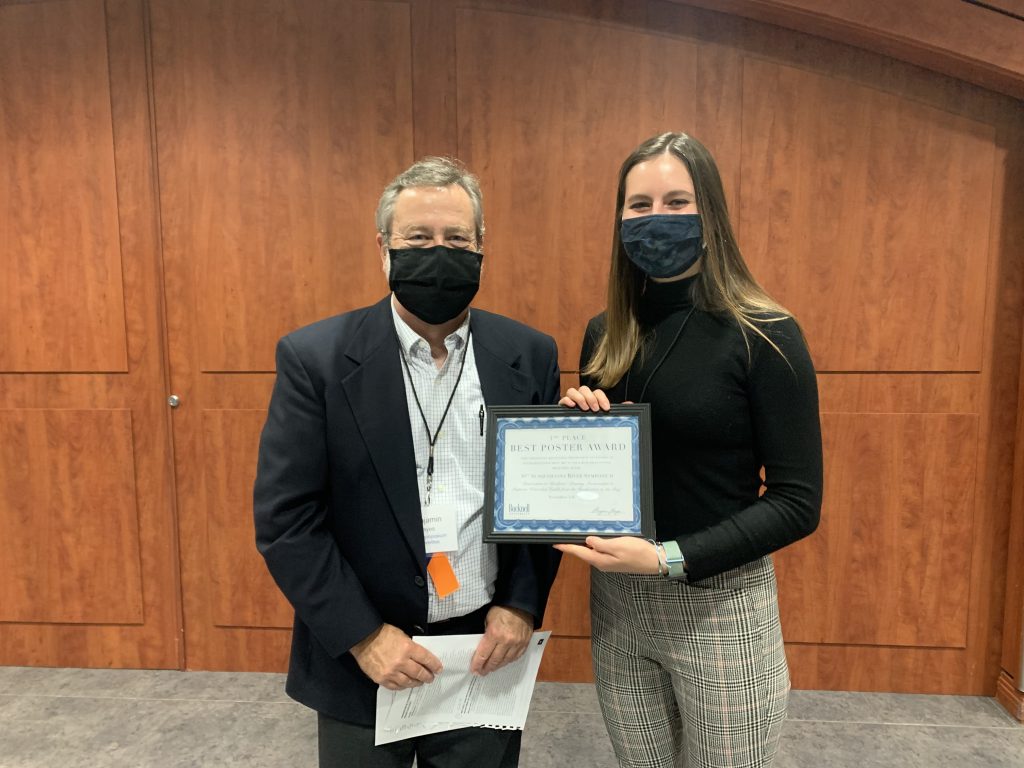
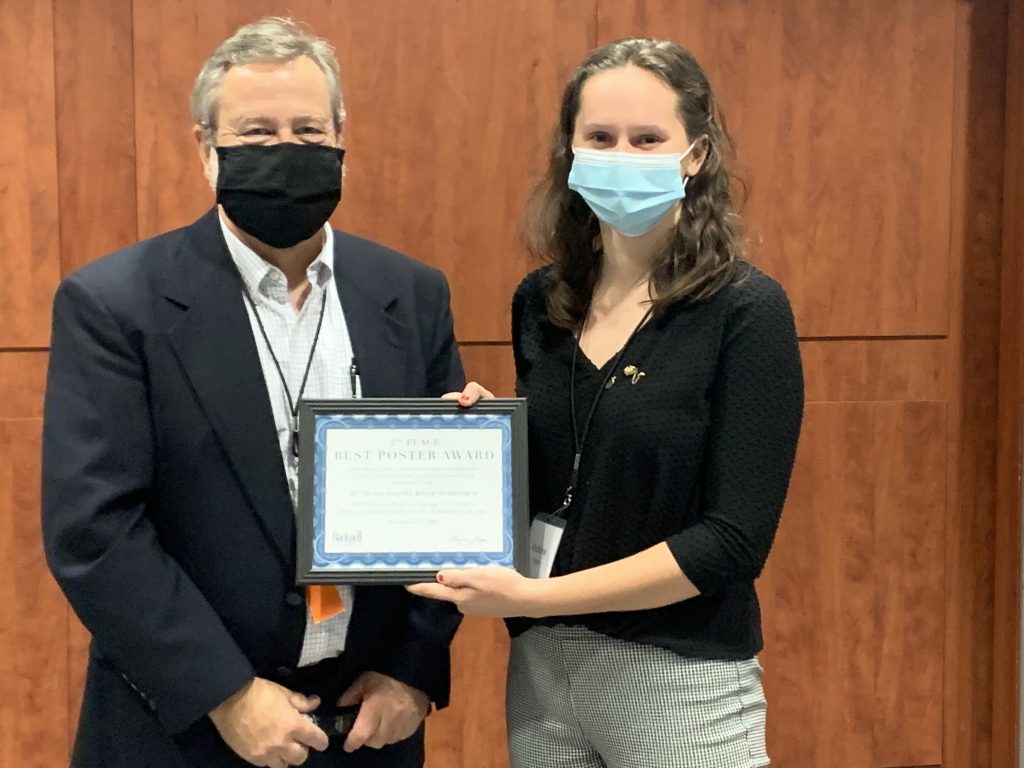
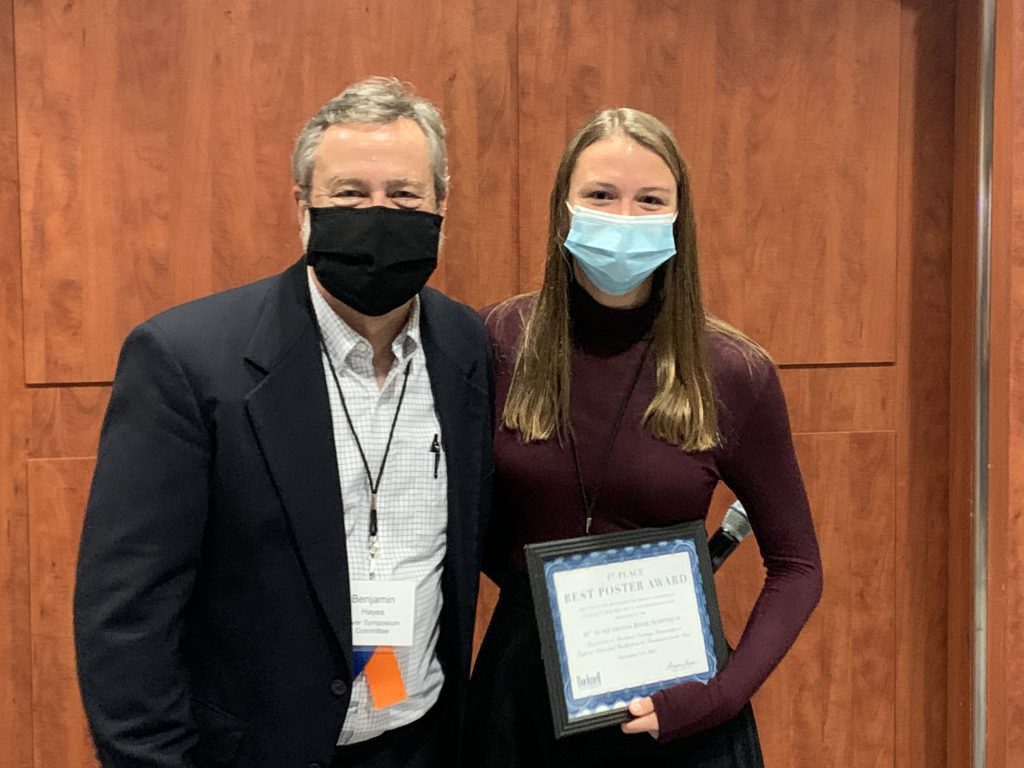
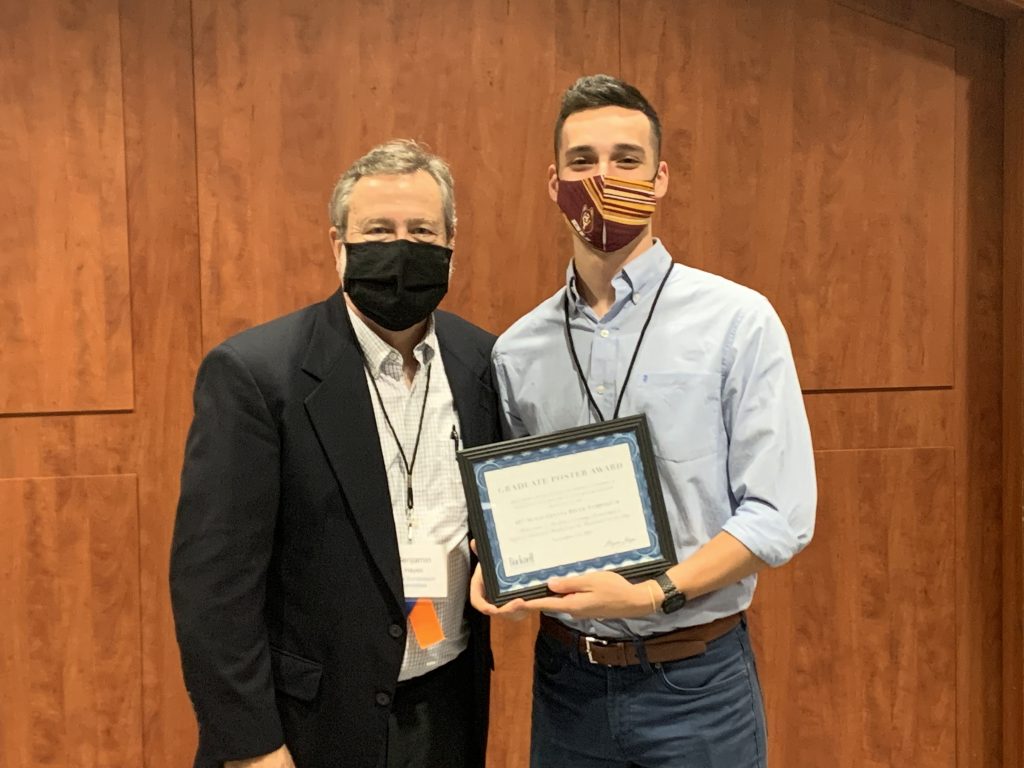
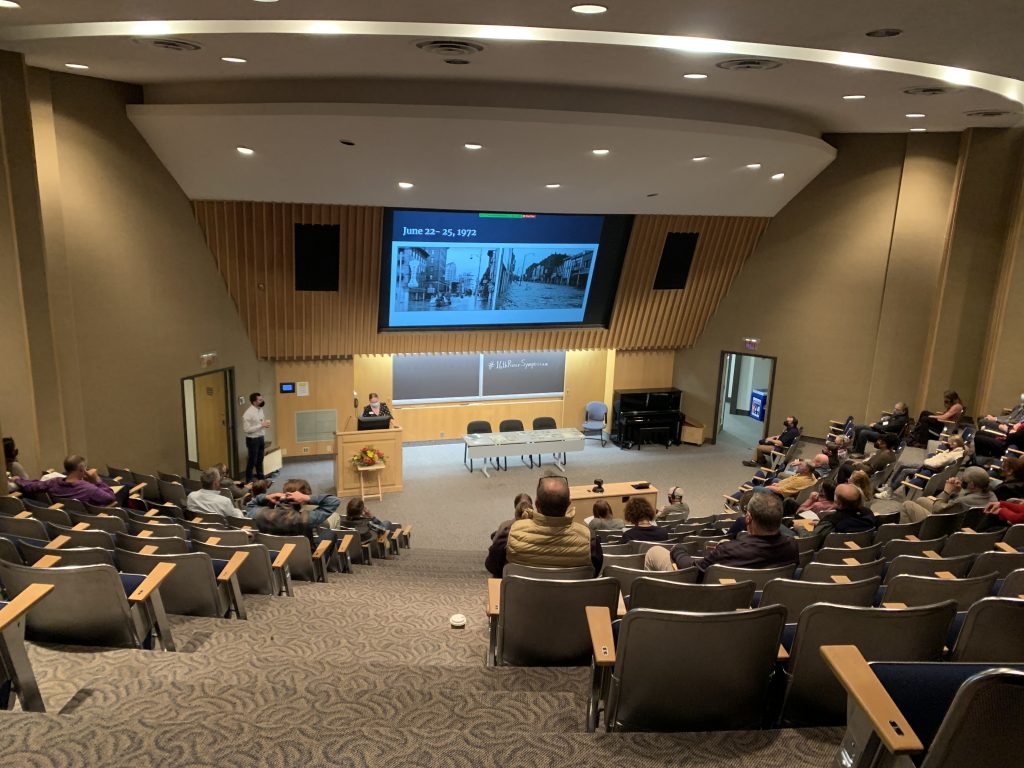
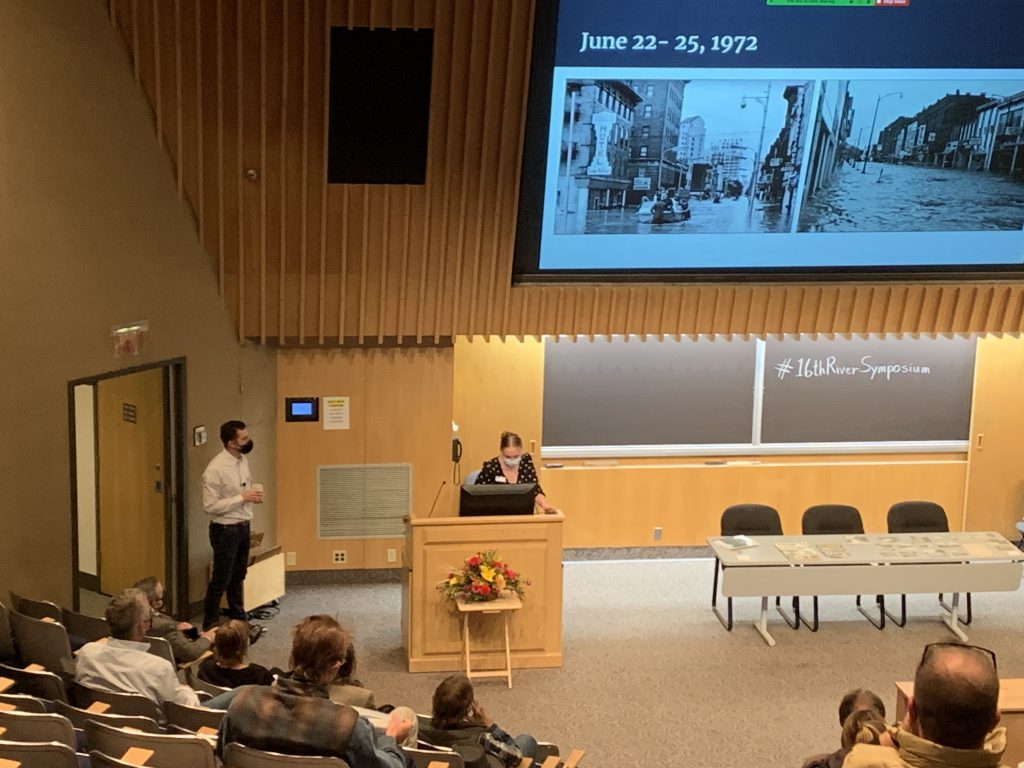
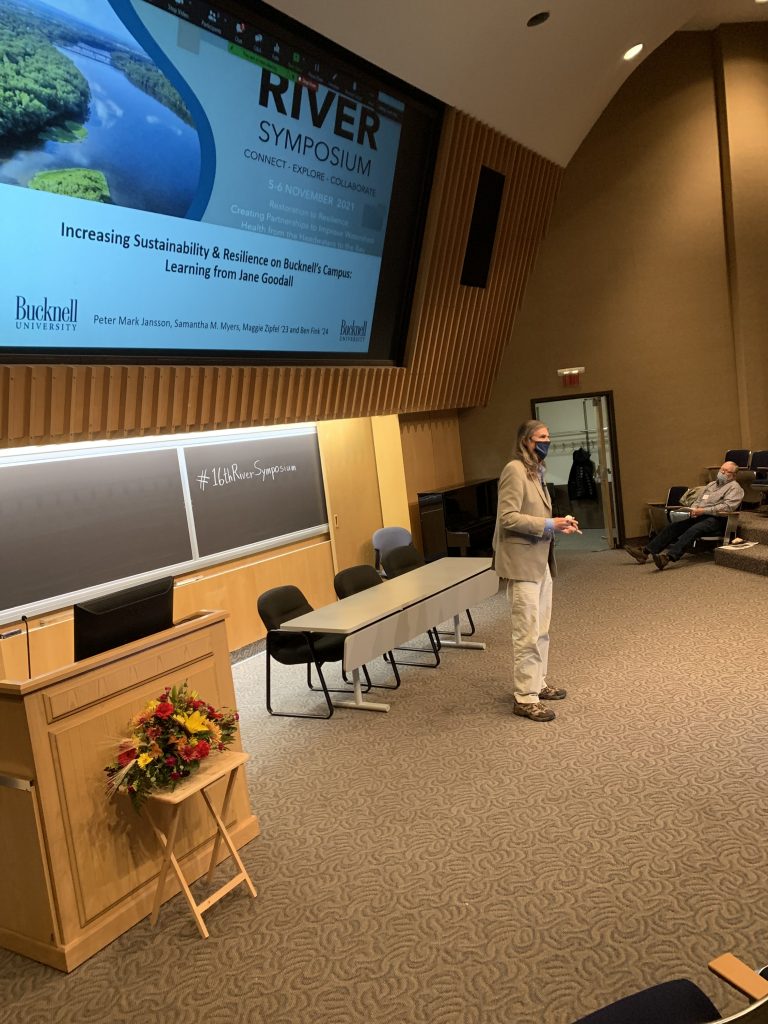
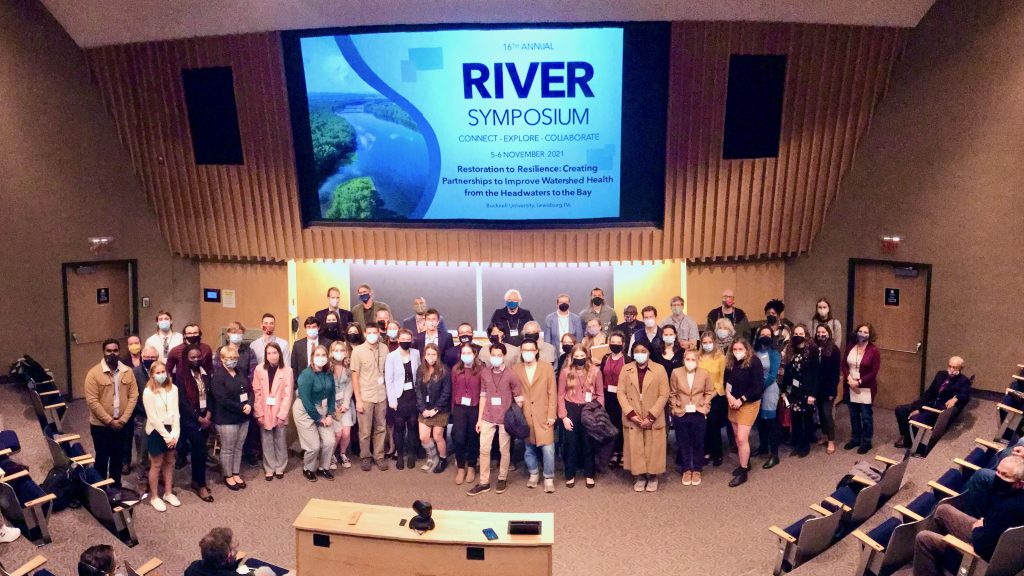
With over 130 authors presenting their oral and poster presentations to an audience of over 250 people, this weekends River Symposium was a smashing success. Congratulations to everyone and we look forward to next year’s event (November 4-5, 2022.
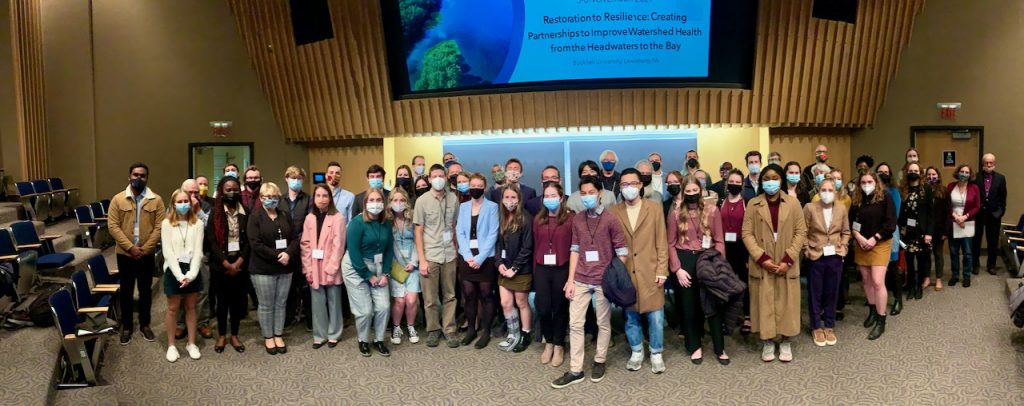
A portion of the students, faculty, and invited speakers presenting at the river symposium this year.
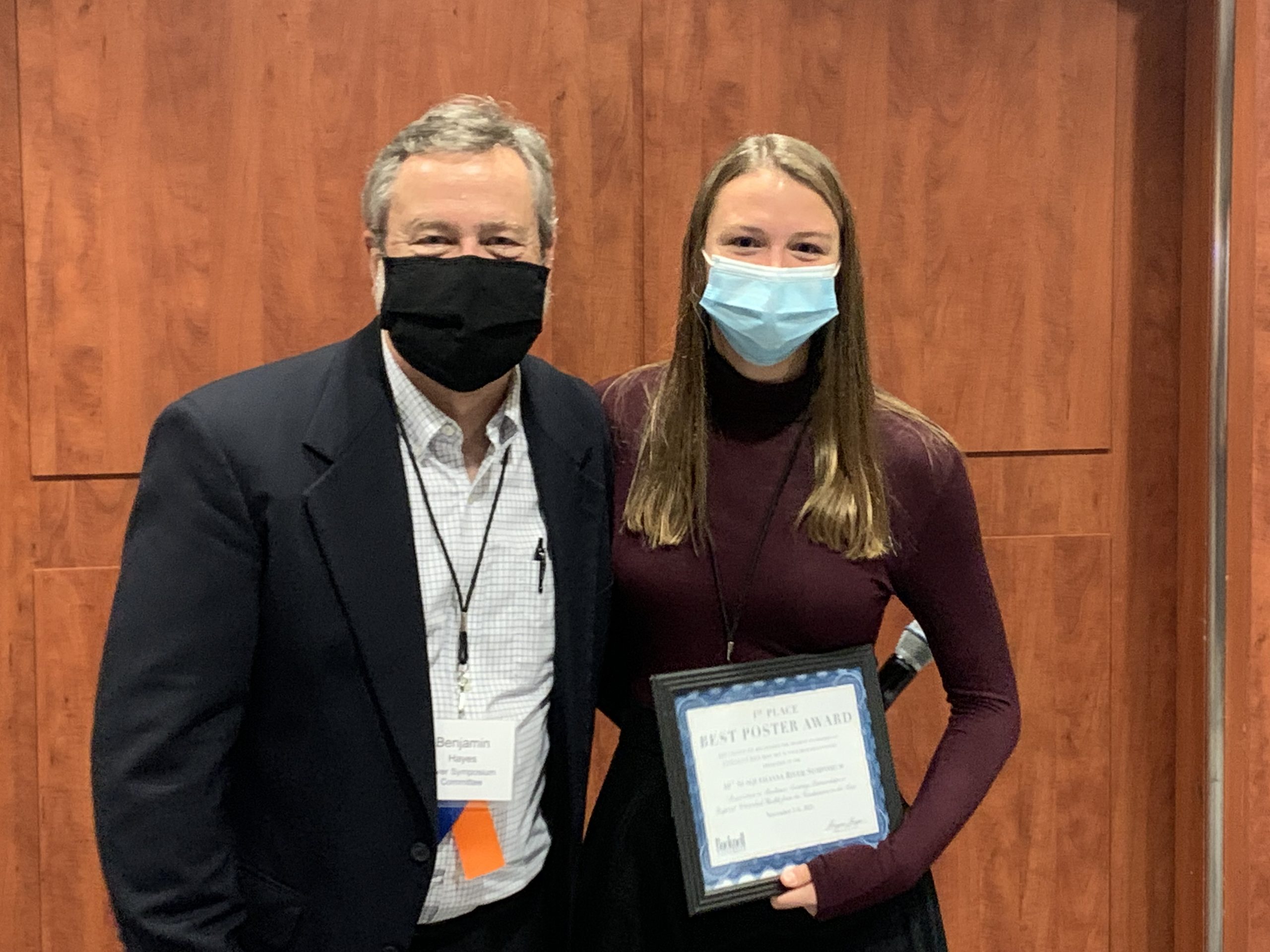
1st Place
Undergraduate Poster
Raegan Dunwoodie
Dept. of Biology
Bucknell University
“Effect of leaf detritus on nutrient uptake in agricultural streams”
Dr. Matthew E. McTammany (research advisor)
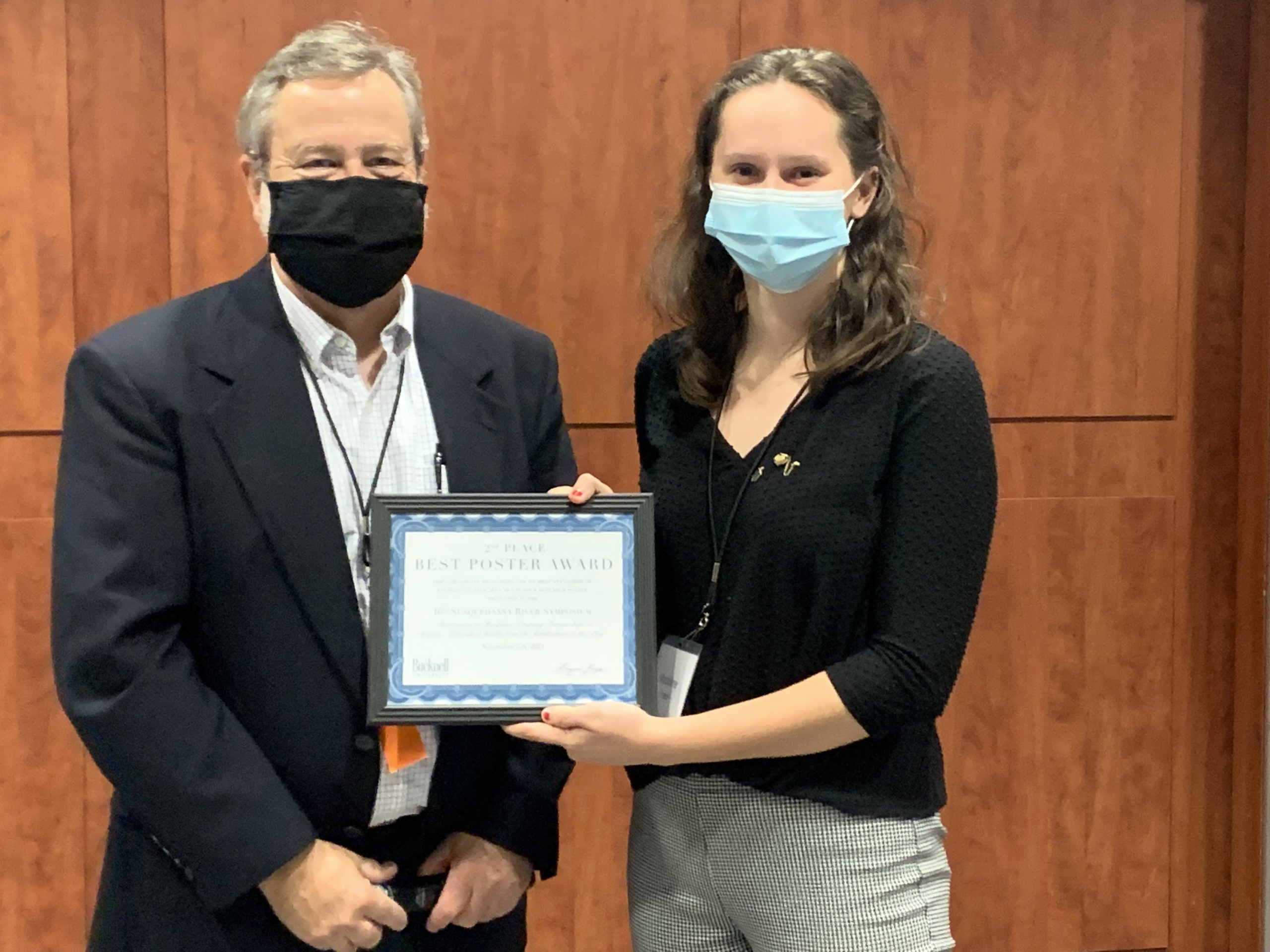
2nd Place
Undergraduate Poster
Madeline Freed
Dept. of Earth & Environmental Sciences
Susquehanna University
“Compositional analyses of Christmas 2020 flood alluvium of the Susquehanna River”
Dr. Jennifer M. Elick (research advisor)
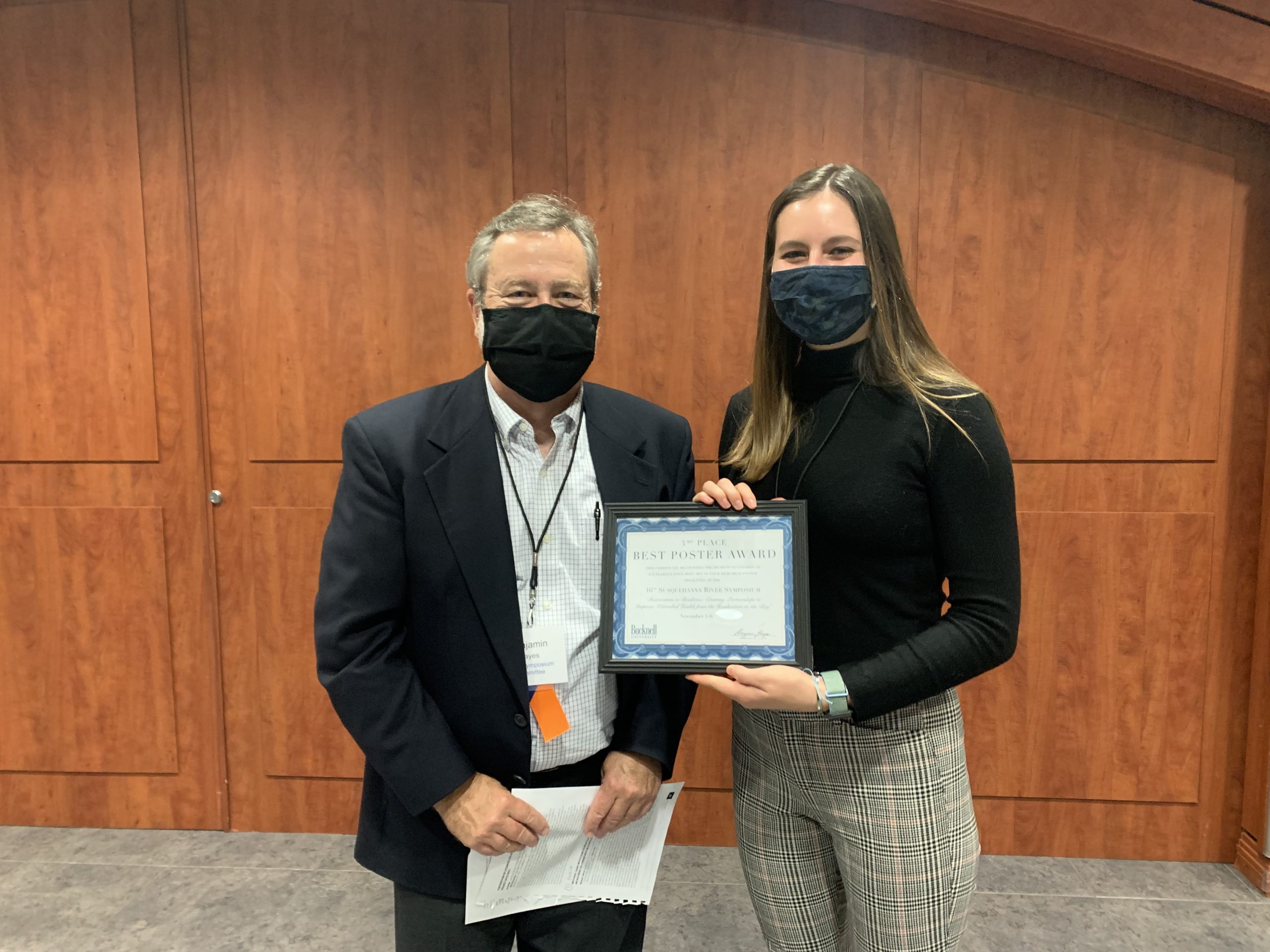
3rd Place
Undergraduate Poster
Katelyn Mahoney
Dept. of Civil and Environmental Studies
Bucknell University
“Constructed wetlands and wastewater treatment plant comparison summary”
Dr. Matthew Higgins (research advisor)
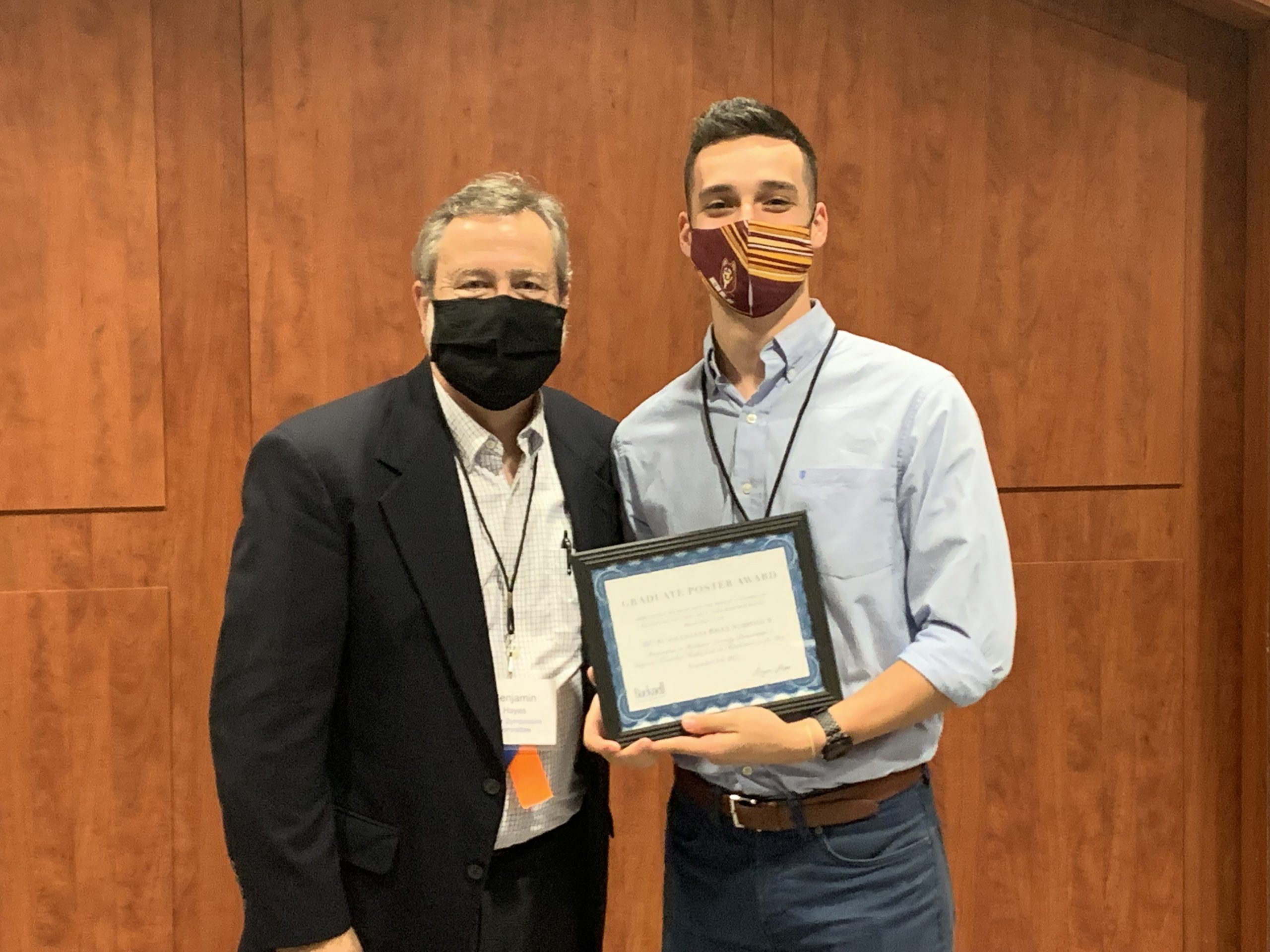
Best Graduate Student Poster
Mitchell Liddick
Dept. of Biological and Allied Health Sciences
Bloomsburg University
Methods: using mesocosms to investigate the role of polyester microfibers on stream biofilm community structure and function
Dr. Steven Rier (research advisor)
INVITED SPEAKERS
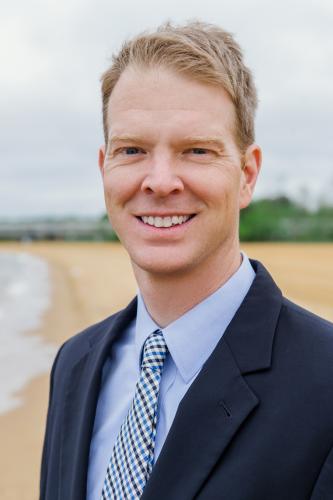
Joel Dunn
President & CEO
Chesapeake Conservancy
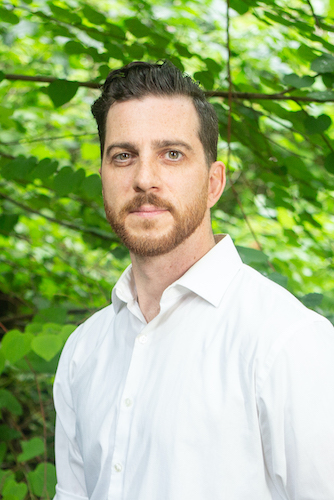
Andrew Stuhl
Profesor of Environmental Studies and Sciences
Bucknell University
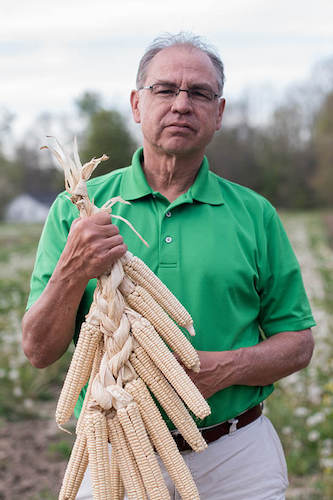
David and Wendy Bray
Farming and Traditional Wisdom
Seneca Nation
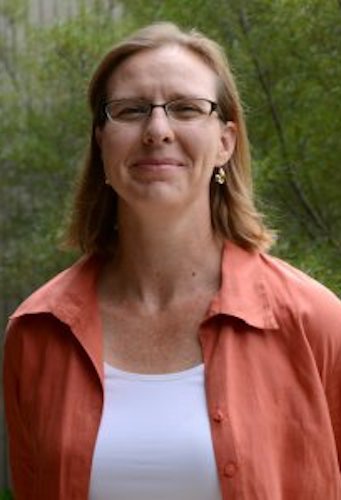
Lara Fowler
Senior Lecturer
Penn State University
SCHEDULE
Friday
November 5, 2021
7:00-7:05 pm – Welcome
Peter Jansson, Faculty Director
Bucknell Center for Sustainability and the Environment
7:05-7:20 pm – Opening Remarks
John Bravman, President
Bucknell University
7:20-7:30 pm – Announcements
Benjamin Hayes, Symposium Chair
7:30-8:00 pm – Keynote Address
Joel Dunn, President & CEO
Chesapeake Conservancy
8:00-10:00 pm – Poster Session
Terrace Room
Elaine Langone Center
Saturday
November 6, 2021
9:00-10:00 am – Plenary Address
Andrew Stuhl, Professor
Bucknell University
10:00-11:30 am – Plenary Address
David and Wendy Bray, Farmer and Teacher
Seneca Nation
11:00 am – 4:00 pm – Exhibits
Watershed Organizations, Conservancies
State and Federal Agencies
12:00-1:00 pm – Lunch
Walls Lounge
Elaine Langone Center
12:15-12:45 pm – Keynote Address
Lara Fowler, Senior Lecturer
Penn State University
1:00-4:00 pm – Oral Presentations
Gallery Theater and The Forum
Elaine Langone Center
Registration
Registering for this year’s River Symposium allows us to run things much more smoothly upon your arrival. As in years past, we are once again asking everyone to register for this event as this will continue to aid us in a seamless symposium, as well as prepare us if the symposium should unexpectedly move to virtual. It will be free and will only take a minute.
Registration provides you a copy of the symposium proceedings, access to all the Zoom links (should we go virtual), and subsequent symposium newsletters and updates.
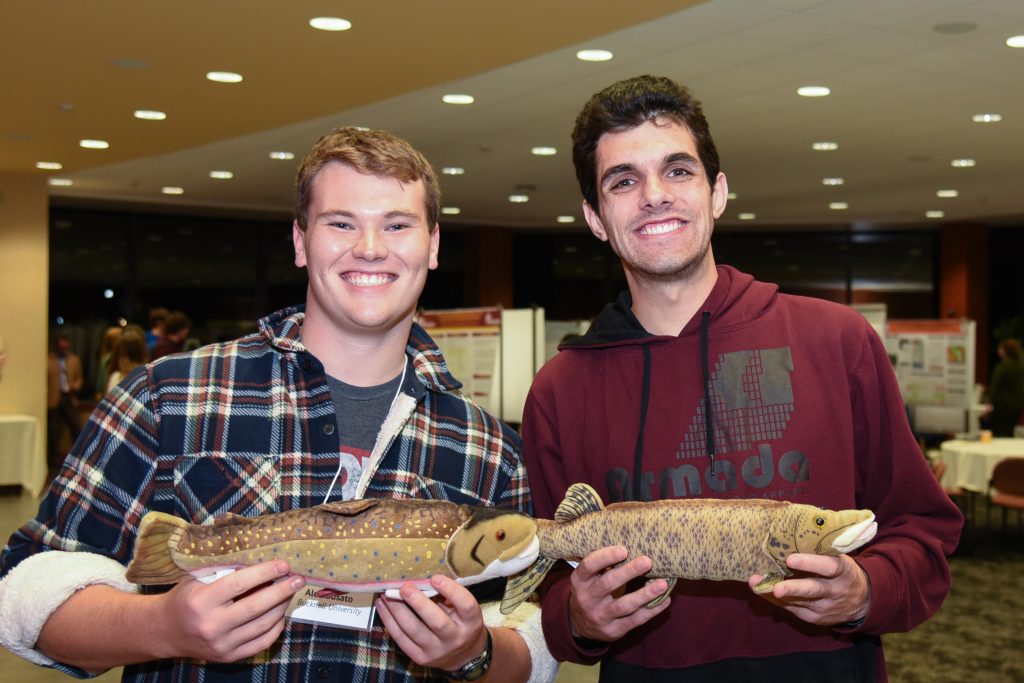
Keynote Address
Friday, November 5th
7:30-8:00 pm: The Forum (Room 272)
Elaine Langone Center (ELC)
“Restoration to Resilience: Creating Collaborative Partnerships to improve the Heath of out Watersheds from the Headwaters to the Bay”
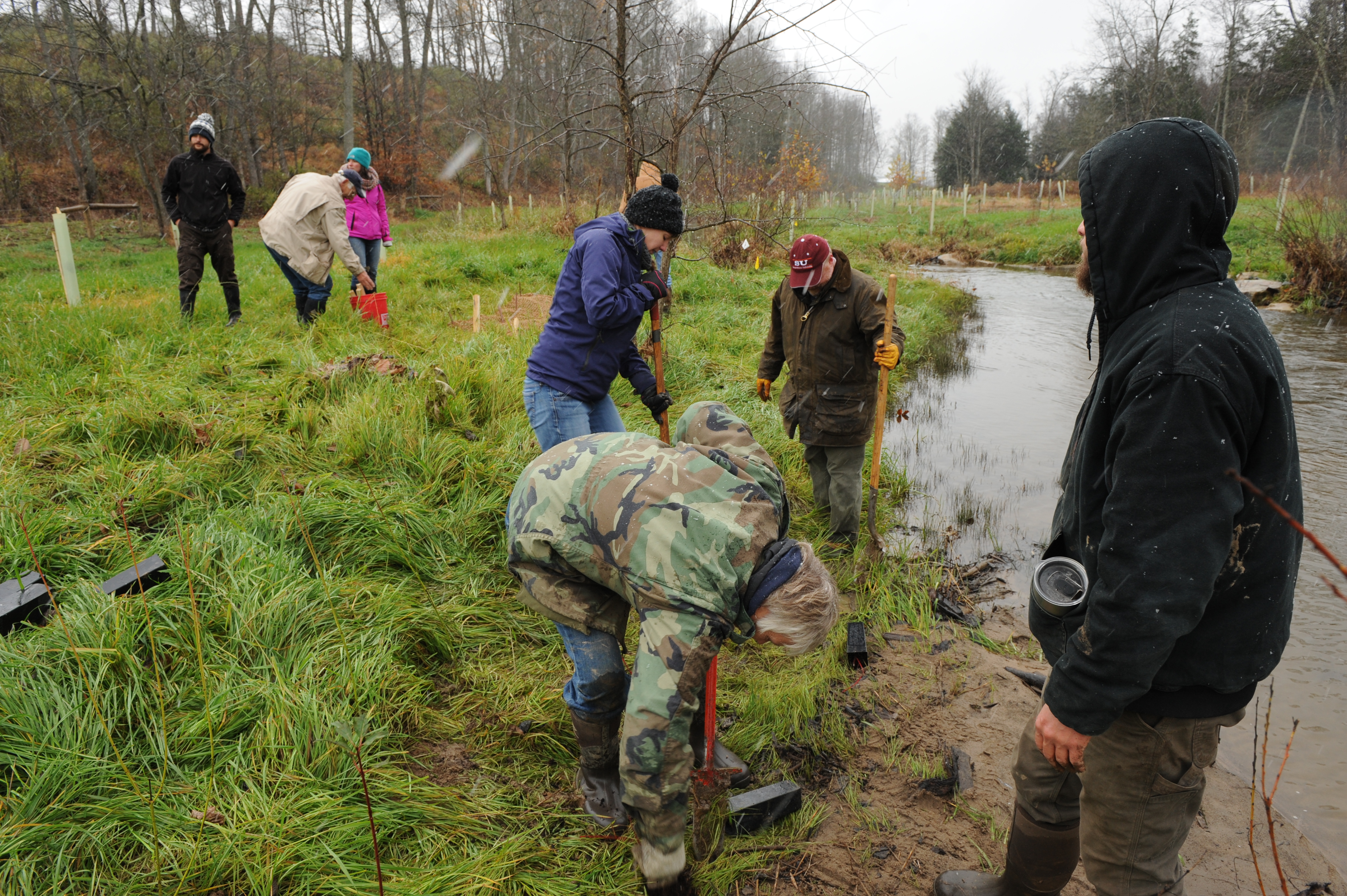
Chesapeake Conservancy and partners install vegetation and structures to reduce nutrient and sediment runoff and improve water quality on a property on Elk Creek, a tributary of Penns Creek, in Centre County, PA
Joel Dunn
President & CEO Chesapeake Conservancy
Joel Dunn gives leadership to this non-profit organization based in Annapolis, MD dedicated to protecting Chesapeake and Susquehanna landscapes that are vital to the health of the Bay and its cultural heritage. With a regional population approaching 18 million and growing and with tens of thousands of acres of open space vanishing each year, the Conservancy strives to restore the health of the Bay and its rivers by preserving working farms and forests and protecting the region’s rich history and character, ensuring a brighter future for the Bay for generations to come.
Joel and the Conservancy have been active in the River Symposium from its beginning in 1995. We are delighted that he will give this years keynote address.
Plenary Address
Saturday, November 6th
9:00- 10:00am: The Forum (Room 272)
Elaine Langone Center (ELC)
“Agnes Revisited: The Thing About the River is it’s Never the Same Twice”
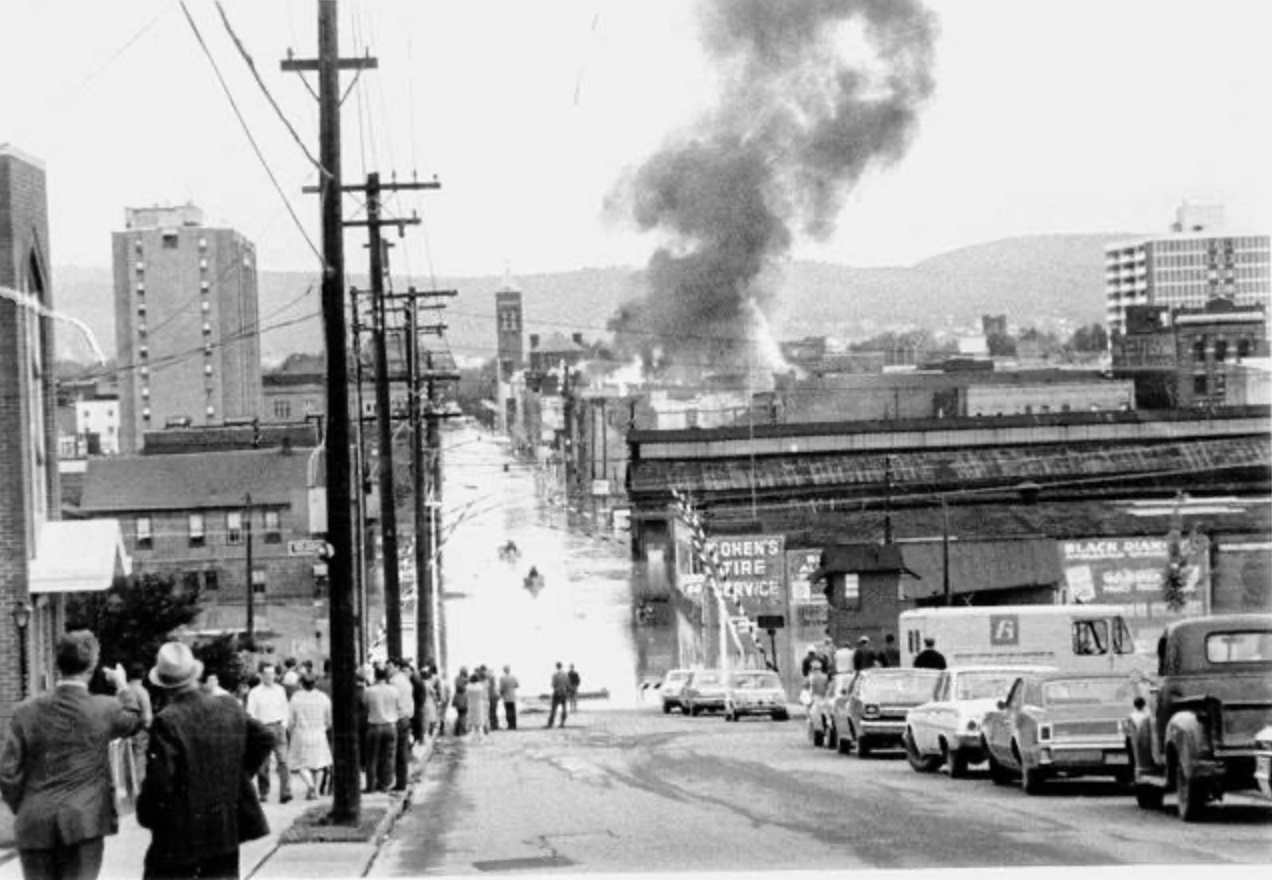
Andrew Stuhl
Professor Environmental Studies and Sciences, Bucknell University
Nearly 50 years ago, Tropical Storm Agnes descended on the Susquehanna River Basin, upending lives, devastating homes, and transforming the Susquehanna Valley. This presentation draws on the historical research of Presidential Fellow Bethany Fitch (‘23) and Prof. Andrew Stuhl (Environmental Studies and Sciences), which includes more than 20 oral histories with Pennsylvanians who lived through the storm and resulting recovery.
Plenary Address
Saturday, November 6th
10:00-11:30am The Forum (Room 272)
Elaine Langone Center (ELC)
“Seneca White Corn: Change and Transmission of the Life Sustainers”

Dave and Wendy Bray
Educators and keepers of Oneo-gen
This plenary address features husband-wife team and Traditional Knowledge Holders Dave and Wendy Bray from the Seneca Nation in Western New York. Dave Bray is a traditional corn farmer and teacher and Wendy Bray a professional educator, cook, and keeper of Oneo-gen, Seneca white corn.
They will talk about the process of sharing their heirloom Native white corn with conservancies across the United States. They will share teachings about the many associated traditions of the Haudenosaunee Nation.”Iroquois.” The history and science of corn, green corn traditional dishes and cooking methods, the Longhouse seasonal ceremonial cycle, and the gift of the Life Sustainers are all discussed with wisdom, humility, and humor.
Keynote Address
Saturday, November 6th
12:15- 12:45 pm: Walls Lounge (over lunch)
Elaine Langone Center (ELC)
“Piloting flood resilience with Pennsylvania’s River Communities”
Lara Fowler
Senior Lecturer, Penn State Law
Assistant Director, Penn State Institutes of Energy and the Environment
Increasing understanding of engagement with communities affected by climate change is a pressing challenge. A pilot project between the Penn State Initiative for Resilient Communities and the Borough of Selinsgrove focuses on flooding and resilience. Now three years along, our presentation will share lessons learned from this partnership. We reflect on how insights from our experiences relate to managing flooding and thinking about community resilience across Pennsylvania. We briefly touch on research related to flood impacts and risk in this region, insights from an assessment of recent FEMA data, and concerns and opportunities raised by community members. The partnership demonstrates the potential value of sustained collaborative partnerships in improving community resilience.
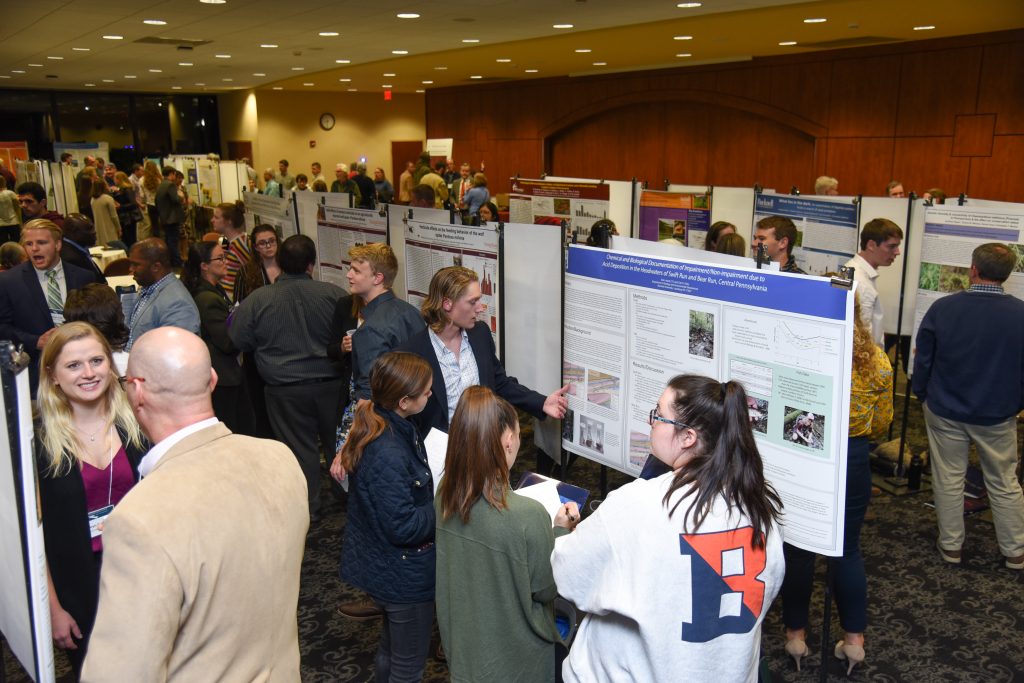
Poster Session
Friday, November 5th
8:00-10:00 pm The Terra Room
Elaine Langone Center (ELC)
Come join us for an evening social and interact with students and faculty from over twenty colleges, organizations, and state and federal agencies. Over 100 authors will be presenting their work. Refreshments will be served.
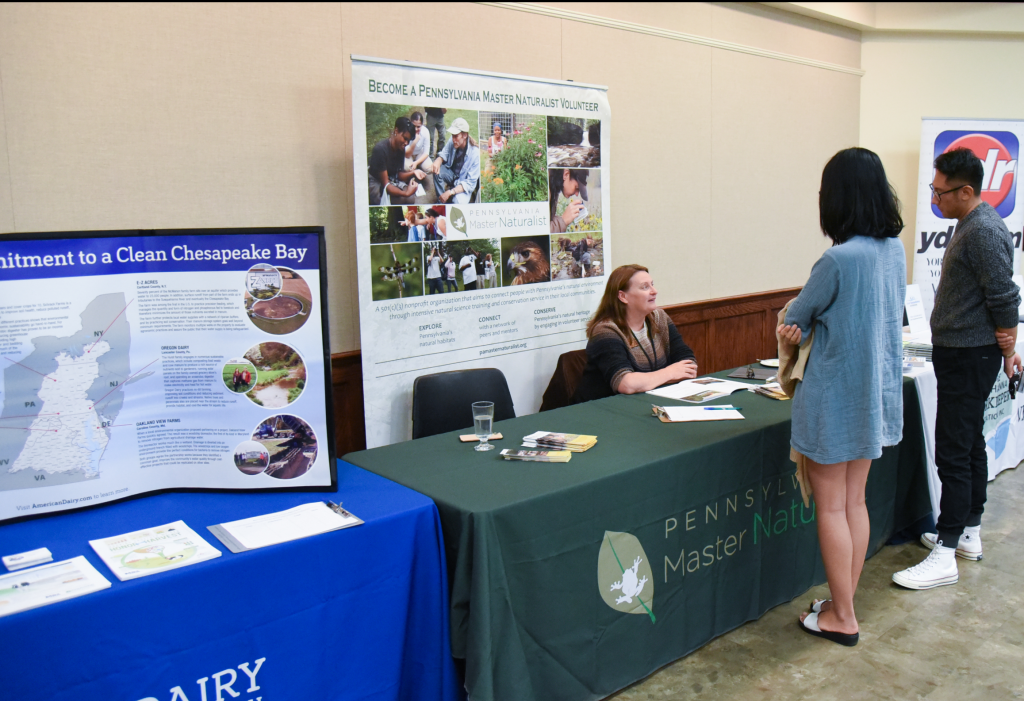
Exhibits
Learn more about the fantastic work underway by agencies and watershed groups throughout the Mid-Atlantic region and interact with representatives.
Exhibits will be on display from 11 am to 4 pm in the Center Room of the Elaine Langone Center.
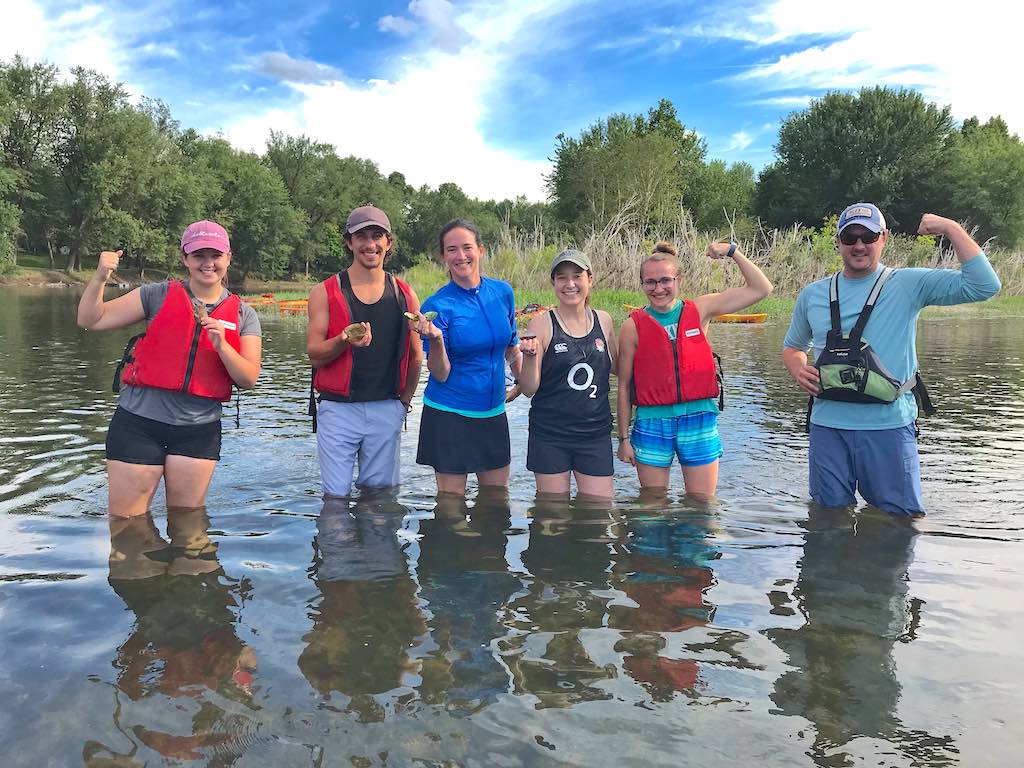
Coming together to inspire change
This symposium draws together people from all walks of life who share a common interest in rivers, watersheds, communities, and the connections therein. It also offers a time and a place where the public can interact with academics, professionals, and regulators, all working toward the same goal – ensuring our watersheds remain healthy for generations to come.
This year’s event, themed “Restoration to Resilience: Creating Partnerships to Improve Watershed Health from the Headwaters to the Bay”, will highlight and promote collaborative partnerships that focus on improving the health and resilience of streams and aquatic ecosystems.
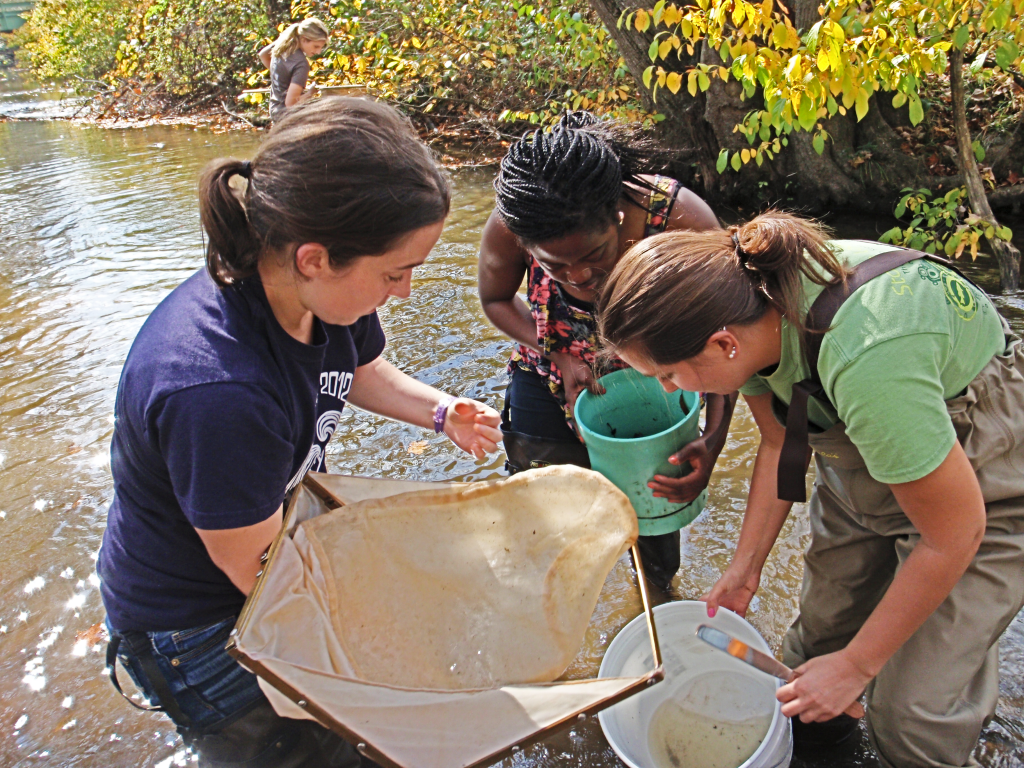
Commitment to Care
Bucknell is preparing to host this year’s symposium as an in-person event so that all individuals onsite — attendees, speakers, staff, vendors, and venue personnel — remain safe and comfortable. Creating a safe, worry-free symposium experience is our top priority.
We are monitoring the COVID-19 pandemic and following the guidance of our partners at Geisinger Medical Center, the Pennsylvania Department of Health, and the Center for Disease Control.
Up-to-date information on COVID and events on the Bucknell campus is available at: https://www.bucknell.edu/life-bucknell/fall-reopening. Should conditions change, we are prepared to offer the symposium entirely online (virtual) like we did last year.
Getting Here
Please feel free to use the helpful links below to plan your trip to the River Symposium
Testimonials
“This is a terrific event! It’s great to see the students present their posters on Friday night and attend the talks and breakout sessions on Saturday. I made a lot of contacts too.” (member of the public)
““I get a lot out of the plenary talks, breakout discussions, oral presentations, and conversations over lunch. I learned so much and plan to come back next year.” (undergraduate student)
“I really appreciate the friendly and welcoming atmosphere of this symposium. It’s a great networking event too. The evening social during Friday’s poster session and the lunch and refreshments during the exhibits are a very nice touch.” (member of local conservancy)
“I really appreciate the friendly and welcoming atmosphere of this symposium. It’s a great networking event too. The evening social during Friday’s poster session and the lunch and refreshments during the exhibits are a very nice touch.“I like how this symposium tries to weave together art, religion, science, economics and policy. I hope Bucknell continues it for many years to come.“ (local citizen)

The River Symposium is an educational outreach event offered by the Bucknell Center for Sustainability & the Environment.
For more information, please contact Dr. Benjamin Hayes, Director of the Watershed Sciences and Engineering Program at the BCSE.
